- Meet the Team
- Our Manifesto
- Work with Us
- Budget Travel
- Personal Development
- Work & Travel
- United Kingdom
- More of Europe
- Philippines
- More of Southeast Asia
- More of South America
- More of Central America
- South Korea
- More of Asia
- More of North America
- New Zealand
- Pacific Islands
- More of Oceania
- South Africa
- More of Africa
- More of the Middle East
- Travel Essentials
- Travel Gear
Home » Europe » Travel Safety

Is Bulgaria SAFE to Visit? (2024 • Insider Tips)
Bulgaria is a strong choice for any traveller.
Sandwiched between the Balkans, and operating a direct train line to Turkey, Bulgaria is bursting with character and unexpected flavours. While often overlooked as a tourist destination, this eastern European country brings a collection of satisfying destinations for a great price.
Unfortunately, alongside a stunning variety of architectural influences and great food, Bulgaria has several common pitfalls that can make your trip far more stressful and complicated than it needs to be.
Alongside Bulgaria’s reputation for organised crime, this could have you asking “ is Bulgaria safe to visit” ?
With that in mind, I’ve created this epic insider’s guide to staying safe in Bulgaria. You’re going to find just about all the information you need to help you achieve top marks in savvy travel, and make sure your Bulgaria visit runs super smoothly.
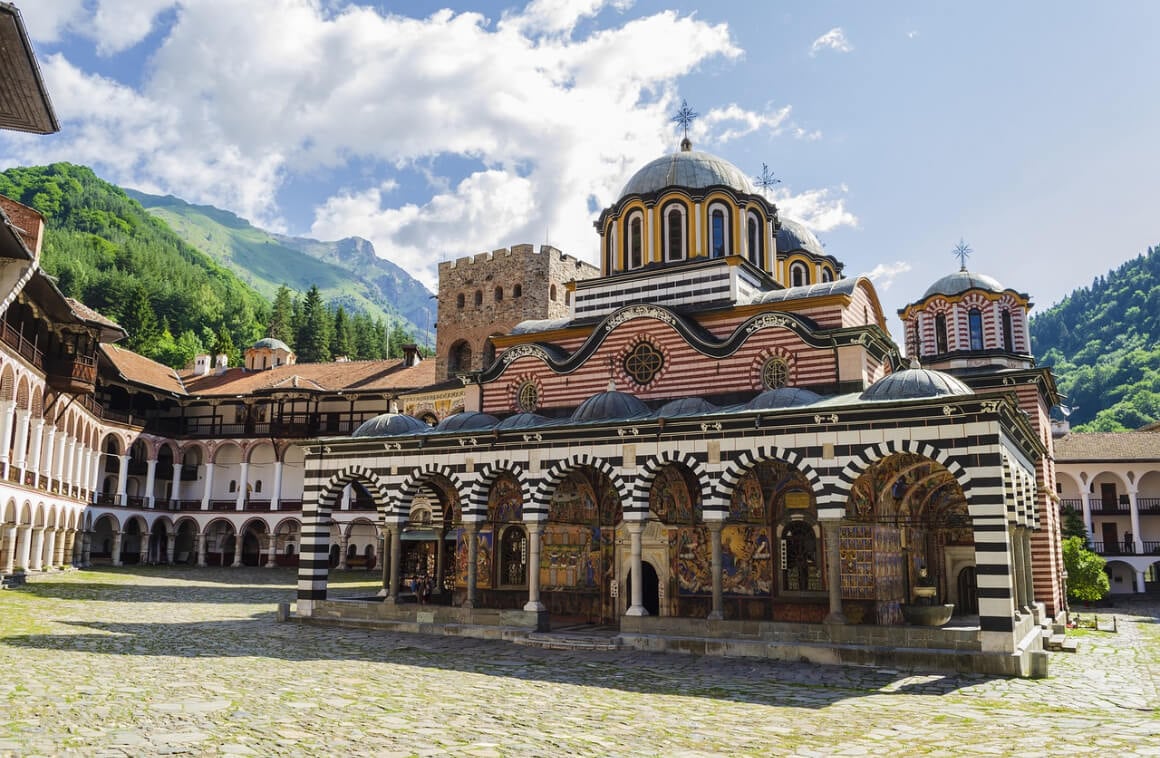
The Broke Backpacker is supported by you . Clicking through our links may earn us a small affiliate commission, and that's what allows us to keep producing free content 🙂 Learn more .
There is no such thing as a perfect safety guide, as things change quickly. The question of “Is Bulgaria Safe?” will ALWAYS have a different answer depending on who you ask.
The information in this safety guide was accurate at the time of writing. If you use our guide, do your own research, and practice common sense, you will probably have a wonderful and safe trip to Bulgaria.
If you see any outdated information, we would really appreciate it if you could reach out in the comments below. Otherwise, stay safe friends!
Updated December 2023

Unlock Our GREATEST Travel Secrets!
Sign up for our newsletter and get the best travel tips delivered right to your inbox.
Is Bulgaria Safe to Visit Right Now?
Safest places in bulgaria, 21 top safety tips for traveling to bulgaria, is bulgaria safe to travel alone, is bulgaria safe for solo female travellers, where to start your travels in bulgaria, is bulgaria safe for families, getting around bulgaria, crime in bulgaria, what to pack for your bulgaria trip, getting insured before visiting bulgaria, faqs on bulgaria’s safety, so, is bulgaria safe.
The simple answer to the question is yes , travelling to Bulgaria is safe . In 2022, a total of 10,887,952 international travellers visited Bulgaria based on the country’s National Statistical Institute report. The majority of them had virtually no reported problems.
Despite the country having a few issues, the international community sees Bulgaria as a very safe place to visit. Tourism is, in fact, critical to the country’s economy.
Bulgaria is ranked as one of the most corrupt countries in Europe, and you do hear very rare stories about organized crime, but there are a ton of reasons why you should visit Bulgaria , and these definitely outweigh the setbacks.
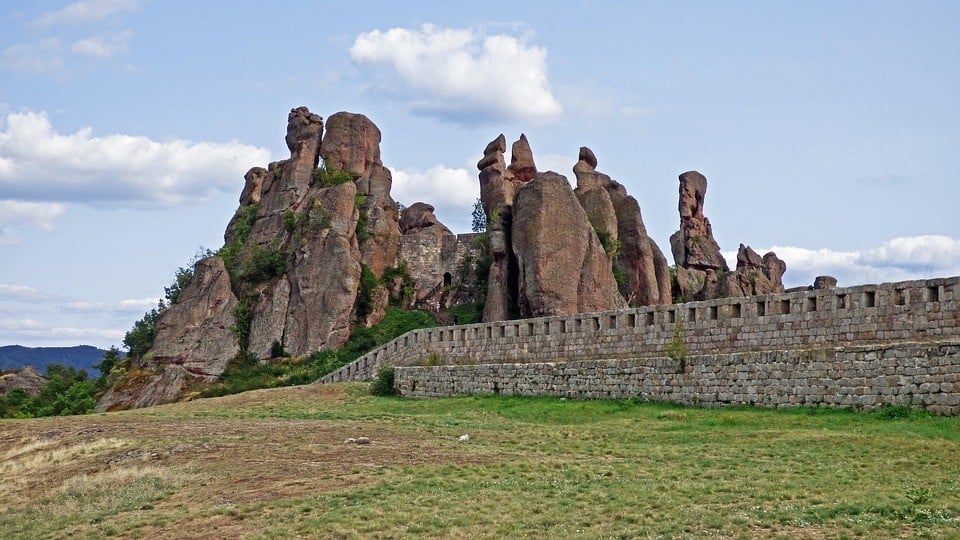
Sadly, there have been instances of targeted robberies within tourist areas, so you should be aware of your surroundings, and take extra care of your belongings within crowds. Muggings and pickpocketing do happen here, but violent crime (especially against tourists) is rare.
Local authorities are generally helpful to tourists, but if something has gone very wrong, contacting emergency consular services will most likely make more of a splash.
Bulgaria is generally a very safe country to visit, and while it does have an edgy/ hardcore side, you shouldn’t experience any trouble, even if you go out frequently.
Check out our detailed where to stay guide for Bulgaria so you can start your trip right!
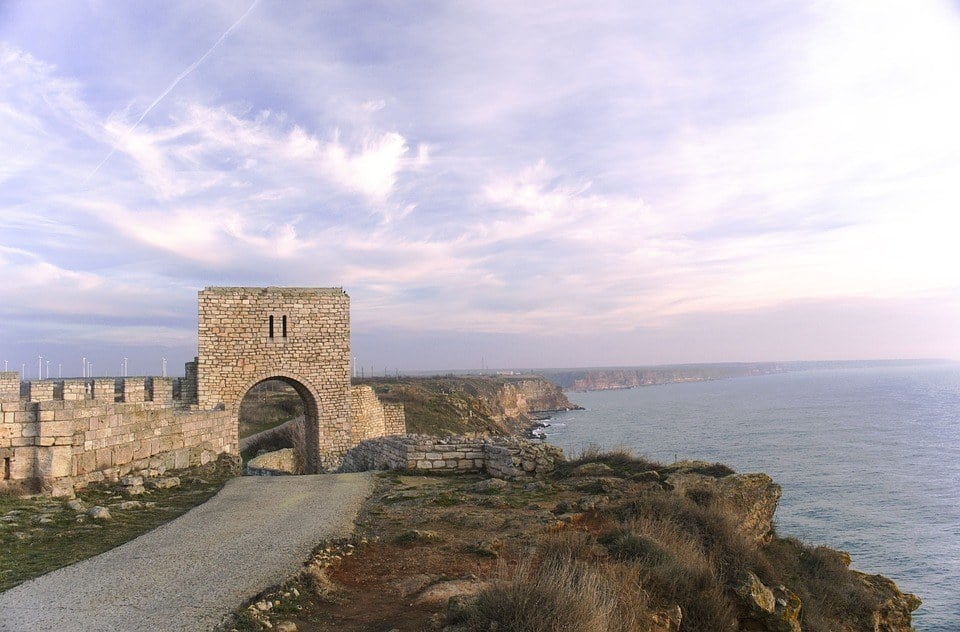
Bulgaria is a fantastic cheap European destination . However, in order to get your stay right, it’s important that you don’t find yourself in a sketchy town, playing with a language that you don’t understand. I’ve listed some places I think are top-notch for travelling, and you should find yourselves right at home!
- Sofia : Sofia is the capital city of Bulgaria, and one of the biggest and most popular ones. There’s an incredible amount of history and culture to soak up here. It’s a very modern and youthful city, with plenty of things to do and explore. There is an array of fantastic Bulgarian food to get stuck in with, and wonderful (powerful?) ex-soviet architecture.
- Varna : Varna is Bulgaria’s third-largest city, located on the Black Sea Coast. You get beaches, culture, stunning parks and an overall very laid-back vibe. During the warm summer months, Varna becomes a tourist hotspot, thanks to great restaurants, a pleasant temperature, and lively nightlife.
- Bansko : For the more adventurous and active backpackers, Bansko is the ideal place. Located in the southwest of Bulgaria, at the foot of the Pirin Mountains, it’s a gateway for some of the best hikes and ski slopes in the country. With a collection of brilliant hotels , fantastic hostels, and unbelievable views, it’s a place that is hard to beat!
Places to avoid in Bulgaria
Whilst safety is less of a major concern here than having fun, it will still pay to keep an eye out in certain sketchy areas. Use your common sense, and make smart decisions. Easy.
Unfortunately, there are parts of Bulgaria where it is worth taking extra caution. Like other countries, Bulgaria has its bad spots!
- Small side streets after dark : This is a no-brainer. If it looks empty and sketchy, simply avoid and stick to the main streets. Especially in larger cities, certain dimly lit roads have reputations.
- Sveta Nedelya Square : This area in Sofia is known for crimes, especially at night. While it’s fine during the day, avoid after dark.
- Red light district near Pliska Hotel : The name itself says it. It’s better to stay away, but there’s nothing to see for tourists anyway (well…). Either way, red-light areas and nightclubs tend to be high-concentration areas for violent crime.
- Resort areas and mountain ski resorts : Since (more) expensive holidays attract people with money, there is an incentive for pickpockets and scammers in these areas. Watch your belongings, and take care that no one can see your PIN! Sunny Beach especially has a slightly dodgy reputation.
You should take extra care when using ATMs Since it is predominantly a cash economy, you will have to do this at several times during your trip. Check the exchange rate before converting, and make sure that you aren’t being watched or followed. Best solution; change money inside a bank’s premises and remember your ID!
Keeping Your Money Safe in Bulgaria
One of the most common things to happen to you whilst travelling is losing your money. And let’s face it: the most annoying way for this to actually occur is when it’s stolen from you.
Petty crime is pretty much a problem all over the world.
The best solution? Get a money belt.
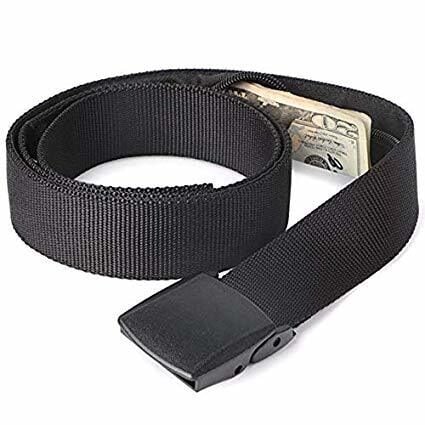
Stash your cash safely with this money belt. It will keep your valuables safely concealed, no matter where you go.
It looks exactly like a normal belt except for a SECRET interior pocket perfectly designed to hide a wad of cash, a passport photocopy or anything else you may wish to hide. Never get caught with your pants down again! (Unless you want to…)
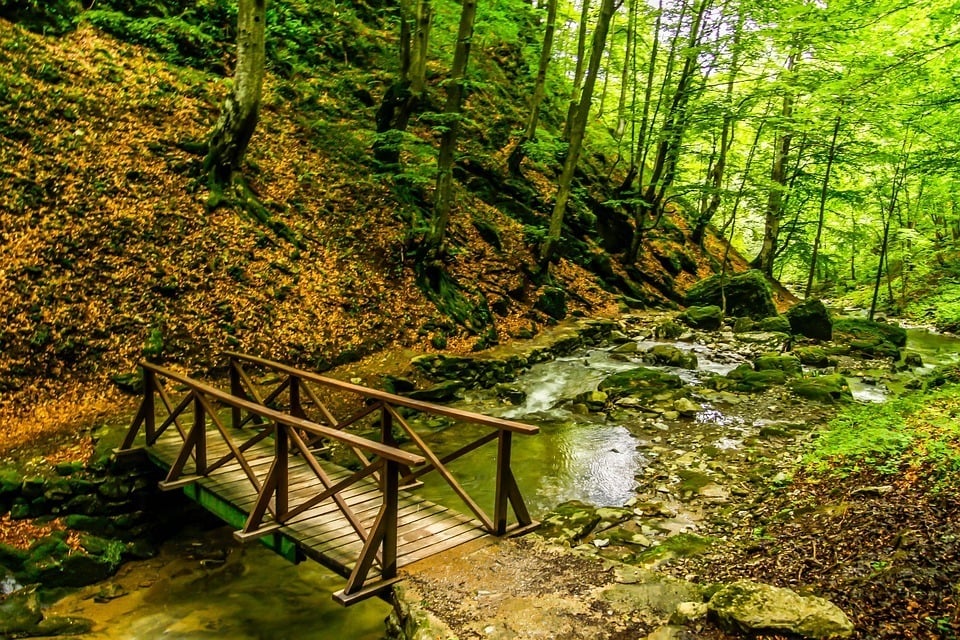
Bulgaria ranks highly as one of the world’s more “peaceful” countries and has a relatively low level of crime. However, that doesn’t mean that there aren’t issues tourists will face here – especially when it comes to visiting, and staying in, popular destinations.
Knowing how to travel safely anywhere is important, but here are some country-specific tips that should help you stay out of trouble! (and remember travel insurance)
- Be aware of pickpockets – these operate in crowded areas, large city centres, and transport hubs.
- Keep belongings close to you – having a bag that’s easily snatchable isn’t a good idea, make sure straps go across your body
- Consider a money belt – the best way to stop thieves in their tracks!
- Don’t take valuables to the beach – with thieves targeting tourists at beach resorts, having any valuables on the beach is not a good idea
- Make sure your hotel room is secure – there has been a rise in robbery from hotel rooms (especially in Sunny Beach). Make sure doors lock securely, windows close and can be locked, you have a safe, and that it’s in a good area of town
- Be wary of strip clubs – people overcharge wildly and use aggressive techniques in Sunny Beach, Sofia, Bansko and Borovets
- Don’t leave valuables in your car – break-ins to rental cars and cars with foreign number plates are common. Don’t leave important items in your car!
- Always keep an emergency stash of cash – Never keep all your cards/ currency in one place. And hide it all from thieves with a hidden money belt .
- Be careful where you park – tires can be deliberately punctured, the driver distracted, etc… it all ends with your stuff being stolen. Not a good move.
- Avoid stray dogs – feral dogs, especially in packs, are common and can be aggressive; they often have rabies
- Keep away from drugs – the penalties are severe
- Don’t get too drunk in public – “hooliganism” like this is treated severely, maybe more so than in your home country
- Be aware of public displays of affection for LGBTQ+ travellers – there isn’t much tolerance here, especially in more rural areas; even Sofia Pride needs heightened security and police presence
- Don’t take pictures of military installations or government buildings – even if they look cool (and some of them do). Ask permission before you do so; snapping a structure without asking is a sensitive issue
- Don’t cover your face in public – garments that cover your face are prohibited in public; there’s a fine if you’re caught doing so
- Cover yourself up in rural areas – arms and legs; tick-borne encephalitis is a risk, and mosquitoes can be rife, too
- Take a good medical kit with you – you never know when you might need it!
- Try not to look like a tourist – pickpockets don’t target locals, only tourists, so avoid looking obvious. See how other people are dressed and follow suit; casual is best, not designer sports gear, SLRs and gold jewellery
- Look confident – like you know where you’re going; looking lost will single you out as a tourist and, therefore, a target
- Speak a bit of Bulgarian – it’ll be good to know a few phrases to get around, ask directions
- Learn to read Cryllic script – even if you don’t know what the meaning is, being able to read place names and menus will be handy
- Understand head gestures – nodding is “no,” and shaking your head is “yes.” Why? We don’t know, but you should remember this!
- Get a sim card – not getting lost in cities, being able to call restaurants and accommodation. Sim cards change your life for the better.
As long as you make sure you try to blend in, don’t look obvious, and stay aware of your surroundings, you’ll be fine in Bulgaria.
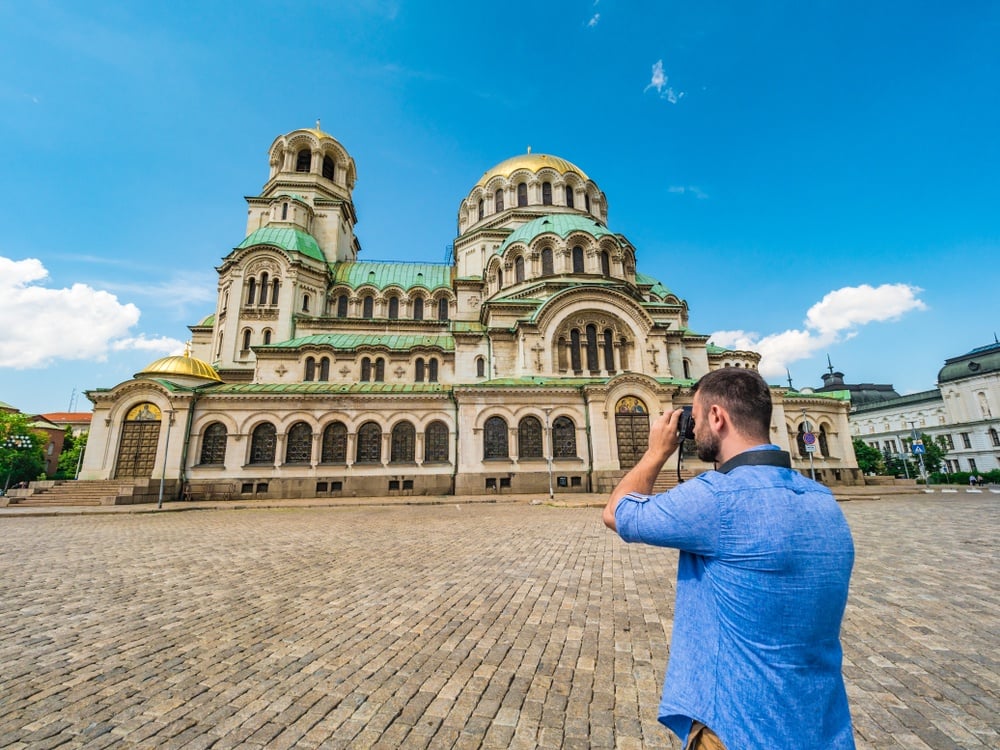
Travelling solo can be amazing anywhere in the world. It’s the ultimate in freedom, allowing you to travel at your own pace, see what you want, stay where you want and do what you want.
Bulgaria is a great place to head off on your next solo travel trip. There are loads of places to see, a ton of accommodation, and so many things to do. Like anywhere, travelling solo can come with some risks, however, so here are a few tips to make sure your trip goes smoothly.
- You should choose your accommodation wisely . Depending on what kind of thing you want, you could opt for a hostel (there are many in Sofia for example), where you can meet other solo travellers, get involved with group activities and have a lot of fun.
- Make full use of tours . In Plovdiv and Sofia, for example, you can get free tours which will help you get to grips with the city, learn about the place you’re travelling to, and talk to some locals.
- Speaking of which, don’t be afraid to talk to locals . Younger Bulgarians, especially in larger cities, generally can speak pretty good English and will be happy to chat to you, talk to you about your trip, and give you a few local tips, too.
- Plan your activities and what you want to do according to the season . Whilst Black Sea beaches are great in summer, they can be perhaps too crowded for you; then again, low season may be too cold or feel not buzzing enough for you.
- Don’t get too drunk . This just is not a good plan, especially if you are by yourself. You could put yourself at risk of being a victim of crime, not find your way home, or even find yourself in trouble with the authorities.
- If you want to meet other travellers, think about getting in touch with them before you visit. Hit up Facebook groups and other places online and ask questions about what people have done before, get ideas on itineraries, that sort of thing.
- Ask the staff at your hostel, hotel or guesthouse for their recommendations. Where is safe to go, where isn’t safe to go, what are good areas to explore, what local, hidden gems they might know about that your guidebook may not have any information on at all. Locals know the score.
- Don’t travel around with too much stuff . Not only is this not fun (trust us), but lugging many bags around with you at one time could put you at risk of being targeted by petty criminals.
- Keep people in the loop . Make sure your relatives and friends back home know what your travel plans are. Consider sharing your itinerary with them and tell them if it changes. Having somebody know where you are and what you’re doing there (and when) is much safer than going off grid.
- Have different ways to access your money . Savings are all well and good, but you should consider opening another bank account so that if you lose one card, you have a back-up pool of money to dip into. At the same time, an emergency credit card may be a good idea for, well, emergencies.
- Don’t take anything valuable to the beach and definitely don’t leave anything unattended on the beach. If you’re by yourself and you go swimming, even something like leaving your phone in your shoes is not a good idea.
- Be careful getting into taxi’s . Bulgaria has a history of fake taxi drivers taking you for a ride you didn’t ask for, so check carefully for a meter, and that someone knows where you’re going.
Bulgaria is actually a really fun country to travel to by yourself. If you want to get to know other people doing what you’re doing, then you will really benefit from the relatively large number of solo (and groups of) travellers making their way through Bulgaria. Don’t forget travel insurance though!
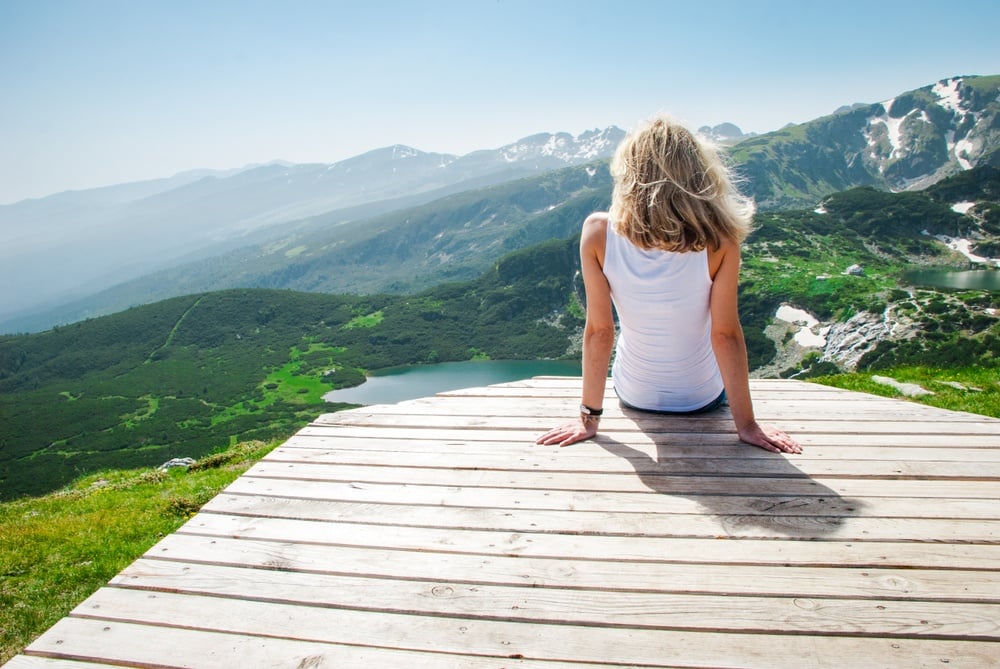
Like pretty much anywhere in the world, the very basic things all female travellers should know apply. Additionally, there are a couple of tricks you might not have thought of when it comes to staying safe in Bulgaria.
Here are our top tips for solo female travellers.
- Bulgarian women don’t tend to go out to bars and nightclubs by themselves. With this in mind, if you want to go out as a solo foreign lady, you should be aware that you will probably attract some attention and may get a few unwanted advances. If you want to avoid that, find some travel buddies to go out with.
- Speaking of which, a good way to meet like-minded travellers – male or female – is to stay at the right accommodation . The key here is research, mainly reading reviews of hostels and hotels that have been written by other female travellers.
- Dress to fit in wherever you are . If you’re staying at a beach resort or in a big city, then things are more modern and free. In the countryside, however, women in Bulgaria tend to cover up in more modest clothing. Take a look around, see what other ladies your age are wearing, and try to follow suit – a good way to not get unwanted attention.
- Be culturally sensitive . In some churches and religious sites for example, women have to cover their head (or hair) and have their shoulders and knees covered. These sorts of coverings are usually on offer at places of worship for women to borrow, but having your own scarf to quickly throw on could come in handy.
- Do not walk around by yourself at night time . No matter how short the journey, walking by yourself at night in an unfamiliar place, in a country you’ve never visited before, is not a clever thing to do. Don’t take the risk and make sure you either have someone to walk home (or around) with or simply get a cab.
- Get yourself on a tour . There’s nothing wrong with hiring your own guide or going on a tour and can in fact be a good way to get to grips with a country, get some insider knowledge, see things you may not have seen otherwise, and to generally make you feel more comfortable. You may get to meet other likeminded travellers, too.
- Be firm with people who may approach you with unwanted attention . Men in Bulgaria can be quite “macho” and might whistle at you, be loud about it and make comments/compliments at you as you pass you by. These are best ignored, but for people who approach you directly, especially when you’re out at bar or on the beach, a firm no should be enough.
- Don’t tell people every detail about your trip – or your life. No stranger needs to know anything about you, really, so if you don’t feel comfortable telling you or the questions are a bit searching, then know that it’s perfectly fine to lie.
- Make sure you have good apps downloaded on your phone to help you in a sticky situation. Things like sharing your location with somebody on Google Maps, having Google Translate, having emergency numbers saved in your contacts (with a symbol at the front so they appear at the top of your contacts), and even an offline maps app like Maps.me – it’s all very useful.
In general, Bulgaria is a pretty safe country for solo female travellers. There are a ton of super interesting sights, excellent experiences and amazing adventures for you to get stuck into without you having to worry all that much about your safety. It’s a well trodden destination.
Having said that, however, it’s all too common for women to be looking over their shoulders – wherever you are in the world, and especially if you are travelling solo. One of the top tips would be to simply not put yourself into risky situations, so trust your gut.
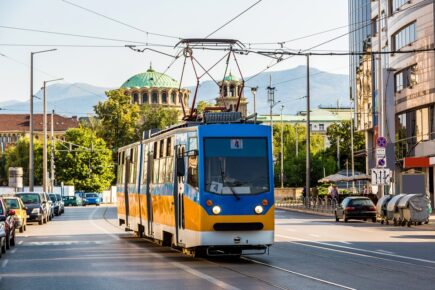
Bulgaria’s capital city, Sofia, shouldn’t be overlooked by travellers. This city is filled with important buildings and stunning attractions and has a youthful energy that’s impossible to deny!
Families are a huge part of Bulgarian culture, and you will be welcomed warmly travelling with your family. Bulgaria has been a firm favourite for many European families looking for a budget beach holiday – so it’s already geared towards families.
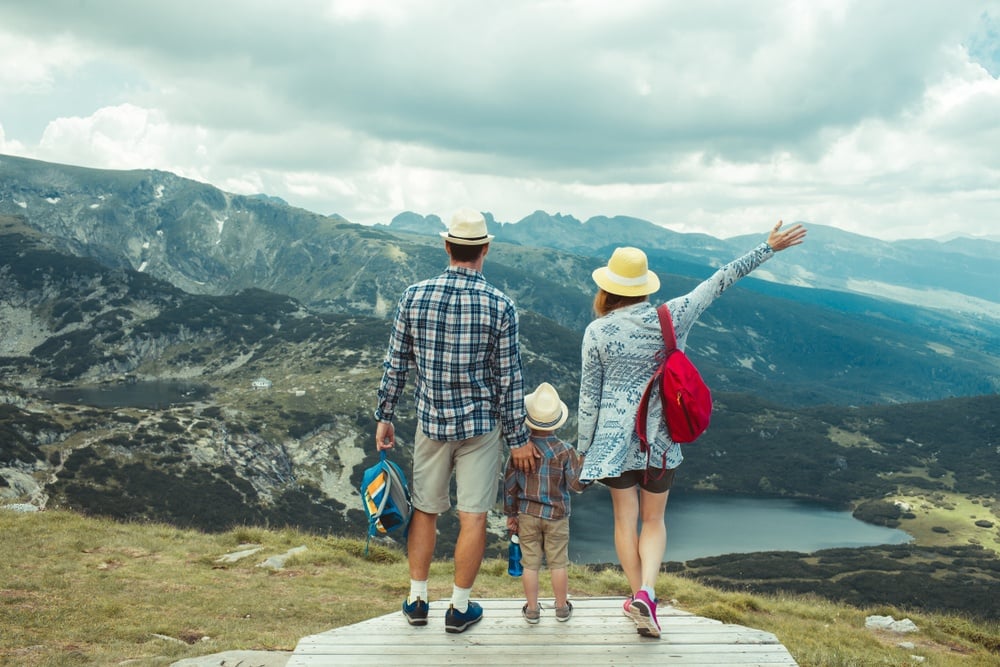
The main problems you will probably face when you’re travelling around Bulgaria with your children are natural. Protecting them from the sun (slather on that sunscreen!) and covering their arms and legs to stop ticks and mosquitoes in their tracks, are two of the most common problems you will face.
It’s important to tell your children that they shouldn’t go anywhere near stray dogs wandering around, as rabies has not been eradicated.
Public transport in Bulgaria is generally pretty safe, but it obviously varies throughout the country. For example, in Sofia, there’s the metro, trams and buses; other towns barely have a bus service.
Trains can be quite slow (especially compared to inter city buses). Learning, or reading, some Cyrillic can definitely help you discern where you’re going and which train services are faster.
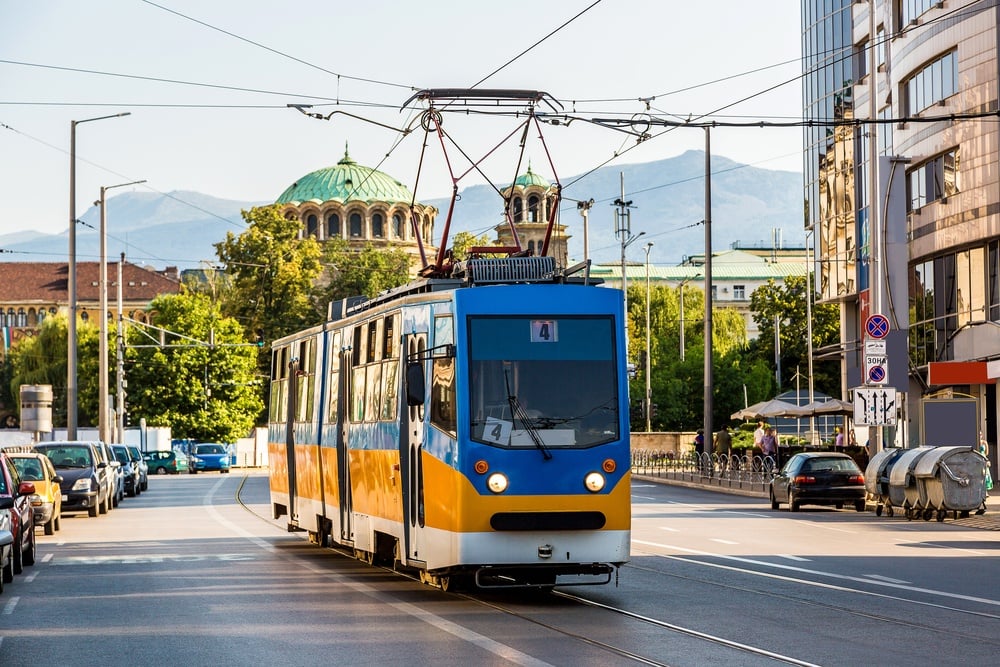
A good tip for using the Bulgaria State Railways is to look online to find out about routes and fares.
Another form of transport are the matrushkas that shuttle people between city centres and suburbs. More like shared taxis, these run along set routes and can be squashy and sketchy but very cheap.
Buses can be found between major cities, and uber is active in the country. There are generally good transport links between places, but it can be hard if you don’t speak Bulgarian.
The crime rate in Bulgaria is actually super low, which is good! However, you should stay aware of potential muggings, pickpocket hotspots, and getting caught in scams. There have been reports of aggressive confrontations in strip clubs after clients refuse to pay an inflated bill, and problems with ATMS.
The U.S travel authorities rate Bulgaria as level 1, meaning you should take normal precautions to ensure your own safety. Use your common sense, make good decisions and be okay with noping out of a situation. Visits to Bulgaria are vastly trouble free.
Laws in Bulgaria
Bulgaria has pretty standard local laws- don’t do anything traditionally illegal and you won’t have cause for concern. When buying property, consider hiring expert legal advice, since there have been cases of buyers being defrauded.
Everyone’s packing list is going to look a little different, but here are a few things I would never want to travel to Bulgaria without…
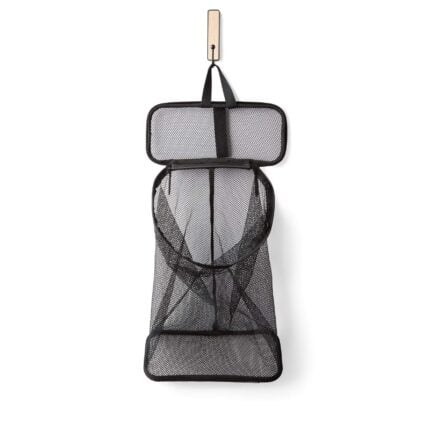
Hanging Laundry Bag
Trust us, this is an absolute game changer. Super compact, a hanging mesh laundry bag stops your dirty clothes from stinking, you don’t know how much you need one of these… so just get it, thank us later.
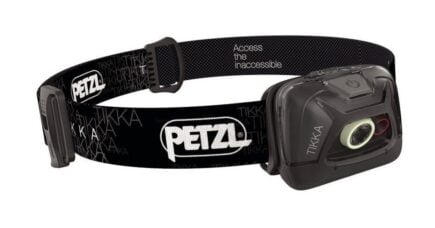
A decent head torch could save your life. If you want to explore caves, unlit temples, or simply find your way to the bathroom during a blackout, a headtorch is a must.
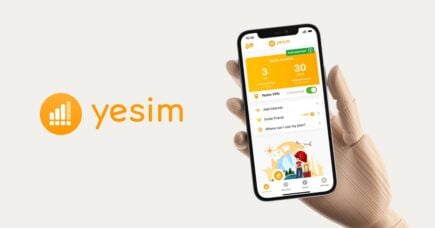
Yesim stands as a premier eSIM service provider, catering specifically to the mobile internet needs of travellers.

Monopoly Deal
Forget about Poker! Monopoly Deal is the single best travel card game that we have ever played. Works with 2-5 players and guarantees happy days.
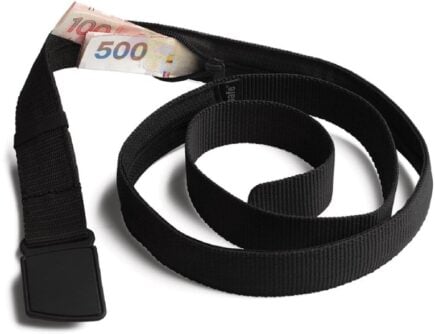
This is a regular looking belt with a concealed pocket on the inside – you can hide up to twenty notes inside and wear it through airport scanners without it setting them off.
ALWAYS sort out your backpacker insurance before your trip. There’s plenty to choose from in that department, but a good place to start is Safety Wing .
They offer month-to-month payments, no lock-in contracts, and require absolutely no itineraries: that’s the exact kind of insurance long-term travellers and digital nomads need.

SafetyWing is cheap, easy, and admin-free: just sign up lickety-split so you can get back to it!
Click the button below to learn more about SafetyWing’s setup or read our insider review for the full tasty scoop.
Planning a safe trip to Bulgaria can get quite overwhelming. That’s why we’ve listed and answered the most frequently asked questions on safety in Bulgaria.
Is Bulgaria safe for solo female travellers?
Yes, Bulgaria is overall safe for female solo travellers. You will get male attention and catcalling, especially in the main cities, but as long as you ignore it, you won’t get into any trouble. You will be safer when travelling with a group. Avoid going out by yourself, unless you are confident you can handle unwanted attention.
Is Bulgaria dangerous for tourists?
No, Bulgaria is not dangerous for tourists if you stick to the rules and respect the culture. Crime is very low in Bulgaria, however, pickpocketing and petty theft have been recorded in the more touristy areas and main cities. Fake taxies can crop up, so be certain before hopping in a cab.
Do I need travel insurance in Bulgaria?
Yes, you should purchase travel insurance before you travel to Bulgaria. Healthcare can be expensive, especially if you need it done privately, and it’s far better to prepare than have to face the music if something goes wrong.
Is Bulgaria safe for LGBTQ+ travellers?
Yes, Bulgaria is overall safe for LGBTQ+ travellers, if you don’t openly show your sexual preferences. While homosexuality is not illegal in Bulgaria, same-sex marriages don’t yet enjoy legal recognition. While the overall attitude is slightly changing, especially in the main cities, you still come across very closed-minded communities.
Is Bulgaria a good place to live?
Is Bulgaria safe to live? Bulgaria is not only a safe place to live, but it’s a great place to live. There are many reasons to visit Bulgaria : there’s a great climate, the cost of living is low, there’s rich history, some lovely natural landscapes and a fairly laid back lifestyle. This has actually led to a fair number of “expats” moving to settle in the country permanently. Bulgaria is quite a peaceful place; there’s not too much disruption to daily life, the weather isn’t too crazy (typhoons? not here) and the locals are welcoming and friendly – generally speaking. A daily life thing to consider is the fact that many European tourists come here for a cheap getaway, often involving drinking, especially in the form of stag and hen-dos. This can be somewhat daunting with loud, drunken behaviour being an issue; conflicts can kick off in bars and nightclubs because of this. Bulgaria, with its history, strong national identity and traditions, is a pretty nice place to live. Choosing where to live is important: whilst Sofia offers up an almost multicultural feeling, the Black Sea coast offers up a place to live by the water. You should definitely travel to Bulgaria first and shop around, to figure out the best place for your lifestyle.
Bulgaria is a very safe country. It scores high marks on the Global Peace Index of 2020, has a generally low level of serious crime, no real political upsets, and a complete lack of terrorist threat.
There are problems in Bulgaria, however. The resorts along the Black Sea can be all kinds of crazy and not in a good way (case in point: Sunny Beach). There is an issue with thieves targeting tourists. The roads here can be bad, and taxi drivers can be sketchy.
These are the things you have to deal with when you’re Bulgaria. The best way to avoid most of them is to not take yourself to the tackiest, craziest beach resorts; try your best to not look like a tourist when you’re here (smartphones away, no SLRs, casual clothes, please); and generally use your smarts.
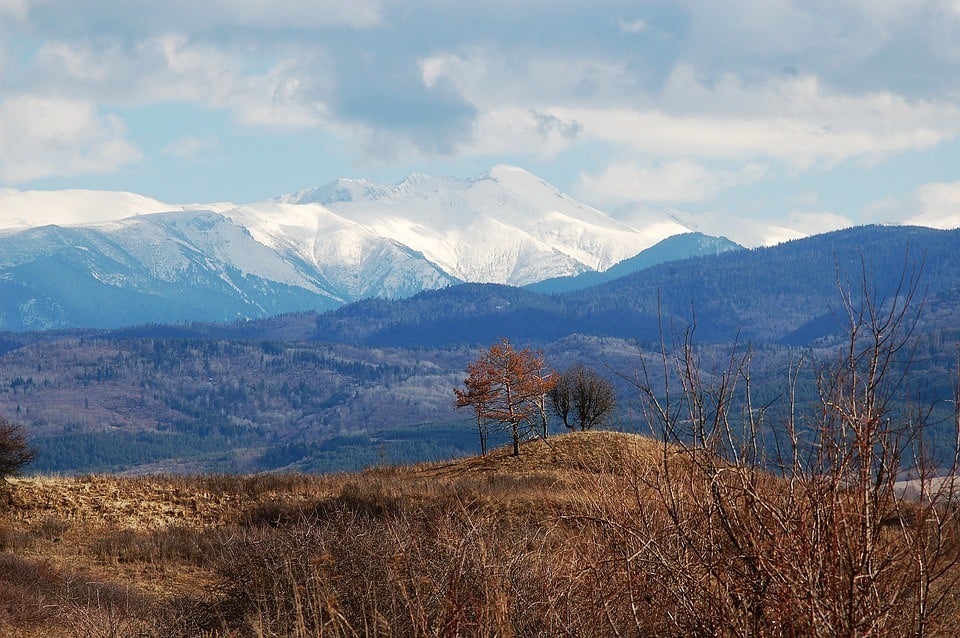
Looking for more info on traveling to Bulgaria?
- Let me help you choose where to stay in Sofia
- Swing by one of these fabulous festivals
- Check out my favorite Airbnbs in the centre of all the action
- Plan the rest of your trip with our fantastic backpacking Bulgaria travel guide!
- Get inspired by these EPIC bucket list adventures !
Disclaimer: Safety conditions change all over the world on a daily basis. We do our best to advise but this info may already be out of date. Do your own research. Enjoy your travels!
Made it this far? You get 15% OFF to book a place to stay ! Offer valid exclusively for Broke Backpackers 😉

Agness and Cez
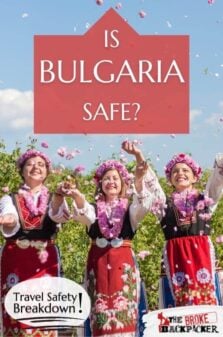
Share or save this post
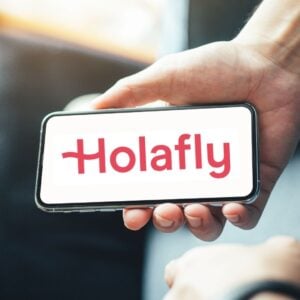
How hot is Sofia in July? Is the opera house air conditioned during performances? Are most restaurants air-conditioned. Are theaters and hotel and restaurants non-smoking? I am allergic go cigarette smoke.
Leave a Reply Cancel reply
Your email address will not be published. Required fields are marked *
Save my name, email, and website in this browser for the next time I comment.
Notify me of followup comments via e-mail.

- Geographic location
- Traditional cuisine
- Lifestyle and Culture
- State Structure and Economy
- Tourist regions
- Cultural Tourism
- Ecological Tourism
- Sea Tourism
- Mountain/Ski Tourism
- Balneology, SPA and Wellness
- Wine and Cuisine
- Sport/Adventurous tourism
- Rural Tourism
- Congress Tourism
- Camping Tourism
- Sites Under the Aegis of UNESCO
- Video recipes
- Virtual walks
- Brexit or EU-27
- Visas and Border Control
- Communications
- Healthcare Services
- Currency Information
Consumer Commission Hotline:
Practical information for tourists – COVID-19

Updated information
(Updated on April 14, 2022)
Messages from the Ministry of Tourism:
Updated information for travelers on entry to Bulgaria
Recommendations of anti-epidemic measures in tourist sites & activities for winter season 2021/2022, covid-19 health travel protocol.

Guidelines for the functioning of accommodation establishments and food and entertainment establishments in the conditions of danger of COVID-19 infection in Bulgaria – (Version 17)

Useful links

Wearing a mask is not mandatory in open public places.
All persons, are obliged to wear a protective face mask for single or multiple use in public settings such as public transport, pharmacies and medical establishments. The measures for disinfection and observance of physical distance are preserved.
All operating establishments can now receive visitors in compliance with the Guidelines issued by the Ministry of Tourism for the operation of accommodation establishments and food and entertainment establishments in the conditions of danger of COVID-19 infection in Bulgaria. The accommodation establishments are ready for normal functioning of and have taken the necessary anti-epidemic measures of the Ministry of Health to operate in the conditions of COVID-19. An individual plan for its operation is required for each establishment in accordance with the recommendations and guidelines of the national and regional public health authorities to limit the Coronavirus infection. All accommodation establishments operate in strict compliance with the requirements, which include specific measures to protect the health of tourists with high hygiene.
Yes, public transport operates normally, with no limit on the capacity of vehicles and/or trains, but it is mandatory to wear personal protective equipment.
The use of masks is mandatory when traveling by taxi, bus, train and other public transport.
There are no restrictions on travel within the country. The rules for social distancing and the use of a protective mask should be observed where indicated. Wearing protective masks is mandatory in closed public areas.
Yes. Restaurants and bars are open (indoor and outdoor areas), following several rules of hygiene and social distance. The tables are placed in such a way as to create a safe distance (1.5 m) between the customers. Personal protective equipment (masks, safety helmets and gloves) is mandatory for staff only.
Yes, tourist attractions such as cultural monuments, museums, zoos, aquariums and other tourist attractions are open to visitors as the rules of social distance should be observed and protective masks should be worn.
Yes, depending on the size of the space, different places, such as libraries, shops and supermarkets, allow only a small number of people to enter each time. In pharmacies, healthcare facilities and public transport protective masks should be worn.
The declared measures may be updated according to the development and the spread of COVID-19.
Concerts and cultural events should be held in open and/or indoor areas with reduced capacity to ensure a safe distance between spectators. The use of protective masks and disinfectants is recommended.
Parks are open; individual outdoor sports as well as swimming in the sea are allowed. It is recommended that people keep the distance and follow the safety rules. The distance between the umbrellas is a distance of required 2 m.
The use of balneological (medical SPA), SPA and wellness centers, as well as visits to swimming pools, including pools with mineral water, is allowed, but in strict compliance with hygiene requirements and distance between visitors.
When using fitness centers, physical distance between people doing sports should be guaranteed.
Shopping centers and retail establishments are open. It is recommended that visitors keep the distance and follow the safety rules.
Users and staff are advised to use protective masks and disinfectants.
When using elevators, in case there is no other alternative, the elevator is used with reduced capacity. Customers should keep a distance of 1.5 m between them.

As per a statement from the World Travel and Tourism Council (WTTC) Bulgaria is part of the tourism destinations with safety and hygiene travel stamp.

Language selection
Search travel.gc.ca.
Help us to improve our website. Take our survey !
COVID-19: travel health notice for all travellers
Bulgaria travel advice
Latest updates: Editorial change
Last updated: August 7, 2024 14:58 ET
On this page
Safety and security, entry and exit requirements, laws and culture, natural disasters and climate, bulgaria - take normal security precautions.
Take normal security precautions in Bulgaria.
Back to top
Petty crime
- Pay particular attention at train and bus stations, tourist sites and crowded areas
- Ensure that your personal belongings, including your passport and other travel documents, are secure at all times
- Avoid showing signs of affluence and carrying large sums of cash
Overcharging
Some tourists have been victims of overcharging in bars and clubs. Discussions about overcharging may lead to threats of violence by security guards, who may force you to pay.
- Be particularly vigilant at tourist resorts along the Black Sea, where this practice is most common
Vehicle theft
Vehicle thefts and break-ins occur frequently.
- Park in a guarded location whenever possible
- Store your valuables safely out of sight
Always be suspicious if someone offers to help you with a flat tire. These individuals may have punctured the tire themselves. They may seize the opportunity to steal your purse or other valuable objects while you’re distracted.
Organized crime
Organized criminal groups are active in casinos and nightclubs. Violent crime may occur, and includes bombings and shootouts between rival gangs.
Credit card and ATM fraud occurs. ATMs fitted with fraudulent card readers are common, particularly in Sofia, Burgas and Varna. Be cautious when using debit or credit cards:
- pay careful attention when your cards are being handled by others
- use ATMs located in well-lit public areas or inside a bank or business
- avoid using card readers with an irregular or unusual feature
- cover the keypad with one hand when entering your PIN
- check for any unauthorized transactions on your account statements
Overseas fraud
Spiked food and drinks
Never leave food or drinks unattended or in the care of strangers. Be wary of accepting snacks, beverages, gum or cigarettes from new acquaintances. These items may contain drugs that could put you at risk of sexual assault and robbery.
There is a threat of terrorism in Europe. Terrorist attacks have occurred in a number of European cities. There is a potential for other violent incidents.
Targets could include:
- government buildings, including schools
- places of worship
- airports and other transportation hubs and networks
- public areas such as tourist attractions, restaurants, bars, coffee shops, shopping centres, markets, hotels and other sites frequented by foreigners
Always be aware of your surroundings when in public places.
Keep in mind, however, that even the most secure locations aren’t completely free of risk.
In response to terrorist attacks in other European cities, Bulgarian authorities have strengthened their security measures in all cities, particularly where large crowds gather.
Demonstrations
Demonstrations may occur. Even peaceful demonstrations can turn violent at any time. They can also lead to disruptions to traffic and public transportation.
- Avoid areas where demonstrations and large gatherings are taking place
- Follow the instructions of local authorities
- Monitor local media for information on ongoing demonstrations
Mass gatherings (large-scale events)
Road safety
Road conditions and road safety can vary greatly throughout the country. Driving conditions may be hazardous due to aggressive drivers, excessive speeds, poor lighting and a lack of traffic signs and lane markings. Potholes and wandering animals are common on rural roads.
- Avoid confronting aggressive drivers, as they may be armed
- Avoid driving after dark outside of major cities
- Be especially cautious when driving during winter, as roads may not be plowed or salted
Pedestrians
Be cautious when crossing streets. Drivers don’t always give pedestrians the right of way.
Police occasionally solicit bribes. They may delay you if you refuse to pay the bribe, but you’re unlikely to experience additional problems beyond inconvenience.
Public transportation
- Use only licensed taxis with meters
- Verify the tariffs on the taxi’s window before entering, as taxi drivers sometime overcharge
- At Sofia Airport, visit the taxi booth in the arrivals terminal to obtain a fair rate
Rail services
Rail services are generally poor. It’s preferable to travel via inter-city buses.
Public transportation systems
Most cities and larger towns have public transportation systems. Inter-city buses are frequent, comfortable and relatively fast. Regular bus service exists between most of Bulgaria’s major cities and towns.
Disruptions and delays to public transportation services, including at ferry ports, railway stations and border crossings, may occur.
We do not make assessments on the compliance of foreign domestic airlines with international safety standards.
Information about foreign domestic airlines
Every country or territory decides who can enter or exit through its borders. The Government of Canada cannot intervene on your behalf if you do not meet your destination’s entry or exit requirements.
We have obtained the information on this page from the Bulgarian authorities. It can, however, change at any time.
Verify this information with the Foreign Representatives in Canada .
schengen_area
- Schengen area
Bulgaria entered the Schengen area on March 31, 2024. Air and maritime border controls are no longer in effect. Land border controls will remain in effect until further notice.
Entry requirements vary depending on the type of passport you use for travel.
Before you travel, check with your transportation company about passport requirements. Its rules on passport validity may be more stringent than the country’s entry rules.
Regular Canadian passport
Your passport must be valid 3 months beyond the date you expect to leave Bulgaria.
Passport for official travel
Different entry rules may apply.
Official travel
Passport with “X” gender identifier
While the Government of Canada issues passports with an “X” gender identifier, it cannot guarantee your entry or transit through other countries. You might face entry restrictions in countries that do not recognize the “X” gender identifier. Before you leave, check with the closest foreign representative for your destination.
Other travel documents
Different entry rules may apply when travelling with a temporary passport or an emergency travel document. Before you leave, check with the closest foreign representative for your destination.
Useful links
- Foreign Representatives in Canada
- Canadian passports
Health Insurance
You must present proof of medical insurance (minimum €30,000 coverage) that’s valid in the European Union (EU) and covers the costs of emergency medical care and evacuation.
Tourist visa: not required for stays of fewer than 90 days in any 180-day period Business visa: not required for stays of fewer than 90 days in any 180-day period Student visa: not required for stays of fewer than 90 days in any 180-day period
You must obtain a visa before travelling if you plan to stay in Bulgaria for more than 90 days. Bulgaria doesn’t grant extensions once you’re in the country, except in cases of emergency or marriage to a Bulgarian citizen.
Bulgaria is a Schengen area country. Canadian citizens do not need a visa for travel to countries within the Schengen area. However, visa-free travel only applies to stays of up to 90 days in any 180-day period. Stays are cumulative and include visits to any Schengen area country.
If you plan to stay in the Schengen area for a longer period of time, you will need a visa. You must contact the high commission or embassy of the country or countries you are travelling to and obtain the appropriate visa(s) prior to travel.
- Foreign Representatives in Canada
Other entry requirements
Upon entry, you may have to show proof of sufficient funds to cover your stay, as well as documents verifying your return or onward travel plans.
- Children and travel
Bulgarian authorities may consider a child born to a Bulgarian parent to be a Bulgarian citizen, even if the child was born in Canada and has a Canadian passport.
Accordingly, children under 18 may only leave Bulgaria when accompanied by both parents or with the consent of both parents. The absentee parent(s) must provide a statement of parental consent to travel, notarized by Bulgarian authorities. You or your child must present this consent form to the authorities upon exiting Bulgaria.
Furthermore, if you’re a single parent or the parent of a child travelling alone, you should contact the Embassy of the Republic of Bulgaria in Canada before travelling, to ensure that your child meets current entry and exit requirements. These may change without notice.
- Embassy of the Republic of Bulgaria
- Ministry of Foreign Affairs - Bulgaria (some content in Bulgarian only)
- Travelling with children
Yellow fever
Learn about potential entry requirements related to yellow fever (vaccines section).
Relevant Travel Health Notices
- Global Measles Notice - 13 March, 2024
- COVID-19 and International Travel - 13 March, 2024
This section contains information on possible health risks and restrictions regularly found or ongoing in the destination. Follow this advice to lower your risk of becoming ill while travelling. Not all risks are listed below.
Consult a health care professional or visit a travel health clinic preferably 6 weeks before you travel to get personalized health advice and recommendations.
Routine vaccines
Be sure that your routine vaccinations , as per your province or territory , are up-to-date before travelling, regardless of your destination.
Some of these vaccinations include measles-mumps-rubella (MMR), diphtheria, tetanus, pertussis, polio, varicella (chickenpox), influenza and others.
Pre-travel vaccines and medications
You may be at risk for preventable diseases while travelling in this destination. Talk to a travel health professional about which medications or vaccines may be right for you, based on your destination and itinerary.
Yellow fever is a disease caused by a flavivirus from the bite of an infected mosquito.
Travellers get vaccinated either because it is required to enter a country or because it is recommended for their protection.
- There is no risk of yellow fever in this country.
Country Entry Requirement*
- Proof of vaccination is not required to enter this country.
Recommendation
- Vaccination is not recommended.
* It is important to note that country entry requirements may not reflect your risk of yellow fever at your destination. It is recommended that you contact the nearest diplomatic or consular office of the destination(s) you will be visiting to verify any additional entry requirements.
About Yellow Fever
Yellow Fever Vaccination Centres in Canada
There is a risk of hepatitis A in this destination. It is a disease of the liver. People can get hepatitis A if they ingest contaminated food or water, eat foods prepared by an infectious person, or if they have close physical contact (such as oral-anal sex) with an infectious person, although casual contact among people does not spread the virus.
Practise safe food and water precautions and wash your hands often. Vaccination is recommended for all travellers to areas where hepatitis A is present.
Tick-borne encephalitis (TBE) is a risk in some areas of this destination. It is a viral disease that affects the central nervous system (brain and spinal cord). It is spread to humans by the bite of infected ticks or occasionally when unpasteurized milk products are consumed.
Travellers to areas where TBE is found may be at higher risk during April to November, and the risk is highest for people who hike or camp in forested areas.
Protect yourself from tick bites . The vaccine is not available in Canada. It may be available in the destination you are travelling to.
Hepatitis B is a risk in every destination. It is a viral liver disease that is easily transmitted from one person to another through exposure to blood and body fluids containing the hepatitis B virus. Travellers who may be exposed to blood or other bodily fluids (e.g., through sexual contact, medical treatment, sharing needles, tattooing, acupuncture or occupational exposure) are at higher risk of getting hepatitis B.
Hepatitis B vaccination is recommended for all travellers. Prevent hepatitis B infection by practicing safe sex, only using new and sterile drug equipment, and only getting tattoos and piercings in settings that follow public health regulations and standards.
Measles is a highly contagious viral disease. It can spread quickly from person to person by direct contact and through droplets in the air.
Anyone who is not protected against measles is at risk of being infected with it when travelling internationally.
Regardless of where you are going, talk to a health care professional before travelling to make sure you are fully protected against measles.
Coronavirus disease (COVID-19) is an infectious viral disease. It can spread from person to person by direct contact and through droplets in the air.
It is recommended that all eligible travellers complete a COVID-19 vaccine series along with any additional recommended doses in Canada before travelling. Evidence shows that vaccines are very effective at preventing severe illness, hospitalization and death from COVID-19. While vaccination provides better protection against serious illness, you may still be at risk of infection from the virus that causes COVID-19. Anyone who has not completed a vaccine series is at increased risk of being infected with the virus that causes COVID-19 and is at greater risk for severe disease when travelling internationally.
Before travelling, verify your destination’s COVID-19 vaccination entry/exit requirements. Regardless of where you are going, talk to a health care professional before travelling to make sure you are adequately protected against COVID-19.
The best way to protect yourself from seasonal influenza (flu) is to get vaccinated every year. Get the flu shot at least 2 weeks before travelling.
The flu occurs worldwide.
- In the Northern Hemisphere, the flu season usually runs from November to April.
- In the Southern Hemisphere, the flu season usually runs between April and October.
- In the tropics, there is flu activity year round.
The flu vaccine available in one hemisphere may only offer partial protection against the flu in the other hemisphere.
The flu virus spreads from person to person when they cough or sneeze or by touching objects and surfaces that have been contaminated with the virus. Clean your hands often and wear a mask if you have a fever or respiratory symptoms.
In this destination, rabies may be present in some wildlife species, including bats. Rabies is a deadly disease that spreads to humans primarily through bites or scratches from an infected animal.
If you are bitten or scratched by an animal while travelling, immediately wash the wound with soap and clean water and see a health care professional.
Before travel, discuss rabies vaccination with a health care professional. It may be recommended for travellers who will be working directly with wildlife.
Safe food and water precautions
Many illnesses can be caused by eating food or drinking beverages contaminated by bacteria, parasites, toxins, or viruses, or by swimming or bathing in contaminated water.
- Learn more about food and water precautions to take to avoid getting sick by visiting our eat and drink safely abroad page. Remember: Boil it, cook it, peel it, or leave it!
- Avoid getting water into your eyes, mouth or nose when swimming or participating in activities in freshwater (streams, canals, lakes), particularly after flooding or heavy rain. Water may look clean but could still be polluted or contaminated.
- Avoid inhaling or swallowing water while bathing, showering, or swimming in pools or hot tubs.
Travellers' diarrhea is the most common illness affecting travellers. It is spread from eating or drinking contaminated food or water.
Risk of developing travellers' diarrhea increases when travelling in regions with poor standards of hygiene and sanitation. Practise safe food and water precautions.
The most important treatment for travellers' diarrhea is rehydration (drinking lots of fluids). Carry oral rehydration salts when travelling.
Insect bite prevention
Many diseases are spread by the bites of infected insects such as mosquitoes, ticks, fleas or flies. When travelling to areas where infected insects may be present:
- Use insect repellent (bug spray) on exposed skin
- Cover up with light-coloured, loose clothes made of tightly woven materials such as nylon or polyester
- Minimize exposure to insects
- Use mosquito netting when sleeping outdoors or in buildings that are not fully enclosed
To learn more about how you can reduce your risk of infection and disease caused by bites, both at home and abroad, visit our insect bite prevention page.
Find out what types of insects are present where you’re travelling, when they’re most active, and the symptoms of the diseases they spread.
Crimean-Congo haemorrhagic fever is a viral disease that can cause fever, pain and bleeding under the skin. In some cases, it can be fatal. It spreads to humans through contact with infected animal blood or tissues, or from the bite of an infected tick. Risk is generally low for most travellers. Celebrations which include the slaughtering of animals and contact with their blood and/ or tissues may increase the risk of exposure to the virus.
Protect yourself from tick bites and wear gloves or other protective clothing if you are in contact with the blood and tissues of animals, particularly livestock. There is no vaccine available for Crimean-Congo haemorrhagic fever.
Animal precautions
Some infections, such as rabies and influenza, can be shared between humans and animals. Certain types of activities may increase your chance of contact with animals, such as travelling in rural or forested areas, camping, hiking, and visiting wet markets (places where live animals are slaughtered and sold) or caves.
Travellers are cautioned to avoid contact with animals, including dogs, livestock (pigs, cows), monkeys, snakes, rodents, birds, and bats, and to avoid eating undercooked wild game.
Closely supervise children, as they are more likely to come in contact with animals.
Person-to-person infections
Stay home if you’re sick and practise proper cough and sneeze etiquette , which includes coughing or sneezing into a tissue or the bend of your arm, not your hand. Reduce your risk of colds, the flu and other illnesses by:
- washing your hands often
- avoiding or limiting the amount of time spent in closed spaces, crowded places, or at large-scale events (concerts, sporting events, rallies)
- avoiding close physical contact with people who may be showing symptoms of illness
Sexually transmitted infections (STIs) , HIV , and mpox are spread through blood and bodily fluids; use condoms, practise safe sex, and limit your number of sexual partners. Check with your local public health authority pre-travel to determine your eligibility for mpox vaccine.
Medical services and facilities
Health care is inadequate. Private hospitals and clinics located in cities are often better staffed and equipped than public or rural facilities. Cash payment is required at time of service.
Medical evacuation can be very expensive and you may need it in case of serious illness or injury.
Make sure you get travel insurance that includes coverage for medical evacuation and hospital stays.
Health and safety outside Canada
Keep in Mind...
The decision to travel is the sole responsibility of the traveller. The traveller is also responsible for his or her own personal safety.
Be prepared. Do not expect medical services to be the same as in Canada. Pack a travel health kit , especially if you will be travelling away from major city centres.
You must abide by local laws.
Learn about what you should do and how we can help if you are arrested or detained abroad .
Transfer to a Canadian prison
Canada and Bulgaria are signatories to the Convention on the Transfer of Sentenced Persons. This enables a Canadian imprisoned in Bulgaria to request a transfer to a Canadian prison to complete a sentence. The transfer requires the agreement of both Canadian and Bulgaria authorities.
This process can take a long time, and there is no guarantee that the transfer will be approved by either or both sides.
Identification
- Always carry photo identification, such as a passport
- Keep a photocopy in a safe location in case of loss or seizure.
Dual citizenship
Dual citizenship is legally recognized in Bulgaria.
If you are a Canadian citizen, but also a citizen of Bulgaria, our ability to offer you consular services may be limited while you're there. You may also be subject to different entry/exit requirements .
Dual citizens
International Child Abduction
The Hague Convention on the Civil Aspects of International Child Abduction is an international treaty. It can help parents with the return of children who have been removed to or retained in certain countries in violation of custody rights. The convention applies between Canada and Bulgaria.
If your child was wrongfully taken to, or is being held in Bulgaria, and if the applicable conditions are met, you may apply for the return of your child to the Bulgarian court.
If you are in this situation:
- act as quickly as you can
- contact the Central Authority for your province or territory of residence for information on starting an application under The Hague Convention
- consult a lawyer in Canada and in Bulgaria to explore all the legal options for the return of your child
- report the situation to the nearest Canadian government office abroad or to the Vulnerable Children's Consular Unit at Global Affairs Canada by calling the Emergency Watch and Response Centre
If your child was removed from a country other than Canada, consult a lawyer to determine if The Hague Convention applies.
Be aware that Canadian consular officials cannot interfere in private legal matters or in another country's judicial affairs.
- List of Canadian Central Authorities for the Hague Convention
- International Child Abductions: A guide for affected parents
- The Hague Convention – Hague Conference on Private International Law
- Canadian embassies and consulates by destination
- Request emergency assistance
Penalties for possession, use or trafficking of illegal drugs are severe. Convicted offenders can expect jail sentences and heavy fines.
Drugs, alcohol and travel
Face covering
It’s illegal to wear clothing or masks that partially or completely cover the face in public places. Failure to comply can result in arrest and heavy fines.
Photography
It’s illegal to photograph military installations.
Drinking and driving
Penalties for drinking and driving are severe.
The legal blood alcohol limit is 0.05%. If a police officer suspects you of drinking and driving, they could confiscate your driver’s licence on the spot and detain you. If you’re convicted, you can expect heavy fines and a possible jail sentence.
Driver’s licence
You can drive with a Canadian driver’s licence for up to 90 days after your arrival. You must carry an international driving permit for longer stays.
More about the International Driving Permit
Driving laws in Bulgaria
- You must possess a vignette or highway permit to travel on Bulgarian roads. You can purchase this electronic vignette at ports, border points, post offices and large gas stations
- Always drive with your headlights on
- Winter tires are mandatory during winter months
- All vehicle occupants must wear a seatbelt
- Children under 10 may ride in the front passenger seat if they’re secured in a child car seat and the airbag has been disabled
- It’s illegal to use a cellular telephone while driving, unless the phone includes a hands-free device
- You must carry a fire extinguisher, first aid kit and warning triangle in your car, as well as a reflective vest. You must always wear this vest when leaving a vehicle that is stranded or involved in an accident
- Carry all related documents, such as ownership, registration and proof of Bulgarian car insurance, in your vehicle
Follow speed limits on all roads. Police conduct frequent checks and may collect fines on the spot. Depending on the offence, they may also confiscate your driver’s licence at the scene.
2SLGBTQI+ persons
Although the laws of Bulgaria don’t prohibit sexual acts between individuals of the same sex, homosexuality isn’t socially tolerated.
Travel and your sexual orientation, gender identity, gender expression and sex characteristics
The currency in Bulgaria is the lev (BGN).
Bulgaria’s economy is primarily cash-based. Most businesses also accept euros and major credit cards. ATMs are widely available. The United Bulgarian Bank in Sofia can process international money transfers.
If you are carrying €10,000 or more, or the equivalent in other currencies, you must make a declaration to customs when you enter or leave the European Union. It includes sums in:
- banknotes and coins
- bearer negotiable instruments such as cheques, travellers’ cheques, promissory notes and money orders
- bonds, shares
- gold coins with a gold content of at least 90 %
- gold bars, nuggets or clumps with a gold content of at least 99.5 %
- any other convertible asset
This does not apply if you are travelling within the European Union or in transit to a non-EU country.
EU cash controls - European Commission
Earthquakes
Bulgaria is located in an active seismic zone.
Bulgaria is prone to flooding after heavy rains. Flooding is often localized, but widespread flooding has occurred in the past. Consult Bulgaria’s National Institute of Meteorology and Hydrology for information and flooding alerts.
In winter, there’s a risk of avalanches in mountainous regions. This risk increases when temperatures rise rapidly after a particularly harsh winter. Extreme weather can also cause landslides.
In the summer and early fall, there’s a risk of wildfires.
National Institute of Meteorology and Hydrology - Bulgaria
Local services
For emergency assistance, dial 112.
Consular assistance
Bulgaria, Moldova
For emergency consular assistance, call the Embassy of Canada to Romania in Bucharest and follow the instructions. At any time, you may also contact the Emergency Watch and Response Centre in Ottawa.
The decision to travel is your choice and you are responsible for your personal safety abroad. We take the safety and security of Canadians abroad very seriously and provide credible and timely information in our Travel Advice to enable you to make well-informed decisions regarding your travel abroad.
The content on this page is provided for information only. While we make every effort to give you correct information, it is provided on an "as is" basis without warranty of any kind, expressed or implied. The Government of Canada does not assume responsibility and will not be liable for any damages in connection to the information provided.
If you need consular assistance while abroad, we will make every effort to help you. However, there may be constraints that will limit the ability of the Government of Canada to provide services.
Learn more about consular services .
Risk Levels
take normal security precautions.
Take similar precautions to those you would take in Canada.
Exercise a high degree of caution
There are certain safety and security concerns or the situation could change quickly. Be very cautious at all times, monitor local media and follow the instructions of local authorities.
IMPORTANT: The two levels below are official Government of Canada Travel Advisories and are issued when the safety and security of Canadians travelling or living in the country or region may be at risk.
Avoid non-essential travel
Your safety and security could be at risk. You should think about your need to travel to this country, territory or region based on family or business requirements, knowledge of or familiarity with the region, and other factors. If you are already there, think about whether you really need to be there. If you do not need to be there, you should think about leaving.
Avoid all travel
You should not travel to this country, territory or region. Your personal safety and security are at great risk. If you are already there, you should think about leaving if it is safe to do so.
We’re sorry, this site is currently experiencing technical difficulties. Please try again in a few moments. Exception: request blocked
Bulgaria Travel Restrictions
Traveler's COVID-19 vaccination status
Traveling from the United States to Bulgaria
Open for vaccinated visitors
COVID-19 testing
Not required
Not required for vaccinated visitors
Restaurants
Not required in enclosed environments and public transportation.
Bulgaria entry details and exceptions
Ready to travel, find flights to bulgaria, find stays in bulgaria, explore more countries on travel restrictions map, destinations you can travel to now, dominican republic, netherlands, philippines, puerto rico, switzerland, united arab emirates, united kingdom, know when to go.
Sign up for email alerts as countries begin to open - choose the destinations you're interested in so you're in the know.
Can I travel to Bulgaria from the United States?
Most visitors from the United States, regardless of vaccination status, can enter Bulgaria.
Can I travel to Bulgaria if I am vaccinated?
Fully vaccinated visitors from the United States can enter Bulgaria without restrictions.
Can I travel to Bulgaria without being vaccinated?
Unvaccinated visitors from the United States can enter Bulgaria without restrictions.
Do I need a COVID test to enter Bulgaria?
Visitors from the United States are not required to present a negative COVID-19 PCR test or antigen result upon entering Bulgaria.
Can I travel to Bulgaria without quarantine?
Travelers from the United States are not required to quarantine.
Do I need to wear a mask in Bulgaria?
Mask usage in Bulgaria is not required in enclosed environments and public transportation.
Are the restaurants and bars open in Bulgaria?
Restaurants in Bulgaria are open. Bars in Bulgaria are .
Cookies on GOV.UK
We use some essential cookies to make this website work.
We’d like to set additional cookies to understand how you use GOV.UK, remember your settings and improve government services.
We also use cookies set by other sites to help us deliver content from their services.
You have accepted additional cookies. You can change your cookie settings at any time.
You have rejected additional cookies. You can change your cookie settings at any time.
- Passports, travel and living abroad
- Travel abroad
- Foreign travel advice
Before you travel check that:
- your destination can provide the healthcare you may need
- you have appropriate travel insurance for local treatment or unexpected medical evacuation
This is particularly important if you have a health condition or are pregnant.
Emergency medical number
Dial 112 and ask for an ambulance.
Contact your insurance or medical assistance company quickly if you’re referred to a medical facility for treatment.
Vaccine recommendations and health risks
At least 8 weeks before your trip:
- check the latest vaccine recommendations for Bulgaria
- see where to get vaccines and whether you have to pay on the NHS travel vaccinations page
See what health risks you’ll face in Bulgaria , including biting insects and ticks.
Altitude sickness is a risk in parts of Bulgaria. Read more about altitude sickness on TravelHealthPro .
Stray dogs are common and can be dangerous. Avoid getting too close to dogs, especially if they are in a pack. Take any animal bites seriously and seek immediate medical advice as rabies and other animal-borne diseases are present in Bulgaria.
The legal status and regulation of some medicines prescribed or bought in the UK can be different in other countries.
Read best practice when travelling with medicines on TravelHealthPro .
Healthcare in Bulgaria
FCDO has a list of medical providers in Bulgaria where some staff will speak English.
Most Bulgarian hospitals are basic and old-fashioned compared to those in the UK. Standards of medical care are generally good, but specialised equipment and treatment may not be available. Hospital staff rarely speak English.
Private clinics and hospitals are generally well-equipped and not expensive in comparison with the UK.
Foreign tourists have sometimes been overcharged in private clinics in tourist resorts. Hotels or resorts my call private ambulances. If you use private medical services, agree a price in advance. Ask whether there is a suitable public health facility nearby if you want to use a health insurance card, as these are not accepted by many private hospitals.
Health insurance cards
To get medically necessary state healthcare in Bulgaria, you need a Global Health Insurance Card ( GHIC ) or a European Health Insurance Card ( EHIC ).
The NHS’s getting healthcare abroad webpage has details about:
- how to apply for a GHIC
- how to get temporary cover if you lose your card or it does not arrive in time
- who qualifies for a new EHIC instead of a GHIC
- what treatment counts as medically necessary
A GHIC or EHIC is not an alternative to travel insurance. You may have costs your GHIC or EHIC does not cover, including:
- changes to travel and accommodation bookings
- additional standard costs for treatment
- medical repatriation to the UK
- treatment that is ruled non-urgent
- private healthcare
- private clinics
Read about healthcare if you live in Bulgaria .

Travel and mental health
Read FCDO guidance on travel and mental health . There is also mental health guidance on TravelHealthPro .
Related content
Is this page useful.
- Yes this page is useful
- No this page is not useful
Help us improve GOV.UK
Don’t include personal or financial information like your National Insurance number or credit card details.
To help us improve GOV.UK, we’d like to know more about your visit today. Please fill in this survey (opens in a new tab) .
- English (EN)
- Español (ES)
- Português (BR)
Is Sofia Safe? Crime Rates & Safety Report
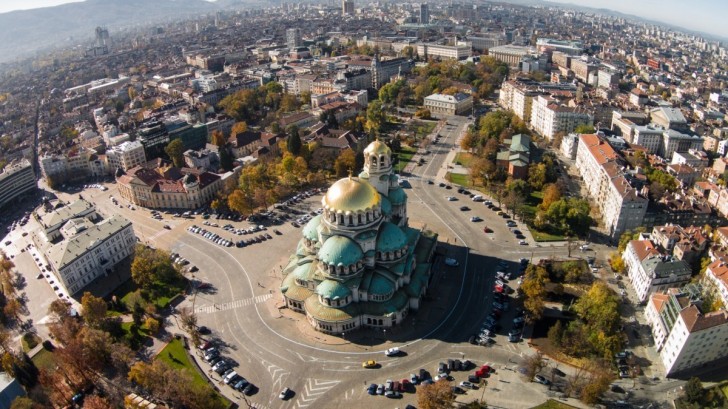
Bulgaria : Safety by City
The capital and the largest city in Bulgaria is Sofia.
It lies at the foot of the mountain Vitosha.
The city is a very old one, founded thousands of years ago, and today has a population of more than 1 million people.
Since it has existed throughout history, Sofia preserves many monuments and landmarks from its past such as the Eastern Gate, the Saint Sofia Basilica, the Presidential Palace and Saint George Rotunda- the oldest church in Sofia, to mention just a few.
Nowadays, Sofia continues to grow and develop into the country’s main cultural and economic center.
- Warnings & Dangers in Sofia
OVERALL RISK: LOW
The very interesting fact is that violent crime practically does not exist in Sofia. Some petty crimes like theft and pick-pocketing happen, but still, according to its ranking, the city is considered a very safe one.
TRANSPORT & TAXIS RISK: LOW
Because drivers are very careless and do not respect traffic signs, it is advisable to avoid driving, unless it is necessary, while pedestrians should not rely only on the traffic lights, but be very careful when crossing the street.
PICKPOCKETS RISK: MEDIUM
The risk of being a victim of pickpockets in Sofia exists, like in any other capital city, where a huge amount of tourists come. The best way to protect yourself from pickpockets is to avoid crowds and staying alone in the street at night.
NATURAL DISASTERS RISK: LOW
The potential natural disasters in Bulgaria are earthquakes and avalanches in the mountains, but they are not often. Even if they happen, they do not usually cause any major damage.
MUGGING RISK: MEDIUM
There have been some records of mugging in Sofia. Kidnapping hardly ever happens, but it is still possible. Tourists need to be very cautious and thoughtful while in the crowds or isolated areas.
TERRORISM RISK: LOW
The numerous terrorist attacks that were happening in Europe make Bulgaria one of the capitals which might be on the terrorists' map. However, there is no concrete terrorist threat. Tourists should pay attention to the suspicious activity of the people around them.
SCAMS RISK: MEDIUM
Taxi drivers play a significant role when scamming in Sofia is in question. They sometimes tend to rob tourists. Drink spiking is also one of the possible scams risks, as well as people who offer help in the street.
WOMEN TRAVELERS RISK: LOW
Sofia, as well as the whole of Bulgaria, is very safe for female tourists. There is always a possibility of the assault, but it tends to be very rare. If you are alone, you should try not to attract the attention of suspicious men.
- So... How Safe Is Sofia Really?
Sofia is home to Bulgaria’s most prestigious cultural and economic life.
Like any other big city, Sofia can satisfy everyone’s taste.
Its excellent museums, galleries, monuments, and buildings attract tourists from all over the world.
At the same time, it is the main location of the lawbreakers.
What is advisable for tourists it to take care of their possessions on the Central Station and Pirotska Street, especially during the night.
Jenski Pazar or Women’s market is the place where you can encounter a lot of pick-pockets and thieves, while Lion’s bridge is very attractive for tourists, but should be avoided due to a large number of criminals.
One of the dangers that are not very frequent in other capital cities is the huge amount of stray dogs in the streets, which sometimes can be dangerous if they attack pedestrians.
It is informed that those found in the center are usually friendly, while those in isolated and remote areas can be aggressive.
You can always ask for a guide who is usually available at hotels and other tourist resorts to lead you through the city and inform you about possible dangers.
Nevertheless, if you practice being vigilant and watchful like in any other place in the world, your trip to Sofia can be relaxed and you can enjoy a wonderful journey to this charming and lively city.
- How Does Sofia Compare?
- Useful Information
Certain countries do not need a visa to stay less than 90 days in Bulgaria. Those are U.S., Australian, European and Canadian visitors. The Bulgarian Ministry of Foreign Affairs can give you all the information regarding visas.
The Bulgarian Lev is the official money and it is suggested to only exchange money at exchange offices or banks, due to the possible fake banknotes. Sofia is considered as one of Europe's most affordable capital city.
The climate in Bulgaria is continental which is characterized by cold winters and quite cool summers. The average temperature during the winter is -1 degree C, while the average summer temperature is 20 degrees C.
The main international airport of Bulgaria, Sofia Airport, is 10 km away from the center of Sofia and it is at the same time the busiest and the largest one. Some other airports less busy than the one in Sofia are Burgas Airport, Varna Airport, and Plovdiv Airport.
Travel Insurance
Whatever is the purpose of your travel to Bulgaria, the insurance policy will provide you security and protection in terms of medical problems, theft and the loss of personal items. What kind of insurance you should take depends on your state, but having medical emergency insurance in Bulgaria is highly recommended.
Sofia Weather Averages (Temperatures)
- Average High/Low Temperature
Bulgaria - Safety by City
- Where to Next?
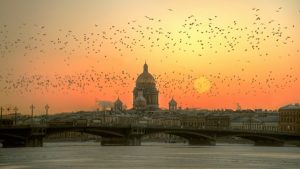
8 Reviews on Sofia
“If you are alone, you should try not to attract attention of suspicious men.” You should really word your warnings for female travelers. It sounds like women go around flapping their boobs and yelling HEY! HEY MAN! COME ASSUALT ME like wtf seriously?
Women don’t try to attract attention they try to be like any other human who is just travelling, and then some men are behaving like animals.
Beautiful Place
I don’t believe the author meant it the way you are taking it. Women attract attention in ways that they don’t realize. One being the way they dress. We live in a world where women need to be aware of the risk of showing a lot of skin in a foreign place. My wife and I do a lot of traveling and she knows where to cover up more because of this. We don’t all live in the same area that has the same culture. Don’t get so offended. You’re not even a woman.
I am from Sofia and I can say that it is a pretty safe city and it is lovely. However,crimes exist everywhere. It is possible that they might happen. So just be careful if you visit!
Whoever wrote this article has never ever live in Sofia… Low crime level… “violent crime practically does not exist in Sofia” – haahahahahaaaaaaaaaaaaaaaahahaha
Would the violence comment incorrect? And if so how bad is it?
I have been to over 20 countries and I can say that Sofia and Bulgaria in general are safe. I have a lot of friends in Bulgaria and I dare say that your comment is based on personal experience or just a negative attitude :))
Sofia is a lovely and safe space for locals and tourists
Sofia is a good place to visit
Sofia is a great example of an old city with tons of history. The capital offers a lot of nightclubs, but I would not recommend the chalga ones. You will be safe as long as you do not wander any dark streets at night, and avoid Luvov most (Lions bridge) and Studentski grad (Student city). Some advice would be to not give money or/and attention to any beggars and always be aware of your belongings.
Share Your Experience Cancel reply
Your Review
Title of your review
Article Contents
- Sofia : Safety by City
- Overall Risk
- Transport & Taxis Risk
- Pickpockets Risk
- Natural Disasters Risk
- Mugging Risk
- Terrorism Risk
- Women Travelers Risk
- Weather Averages (Temperatures)
- User Reviews
- Share Your Experience
Popular Destinations

Safety Index
Recent reviews & comments.
- Kentson Anttila on 16 Pros and Cons of Living in Finland
- Michael Shapiso on Davidson
- Kathlene Boyle on Davidson
- Dallas Low on Davidson
- Ryan Ross on Truro
Popular US States
- Pennsylvania

Search Smartraveller

Latest update
Exercise normal safety precautions in Bulgaria.
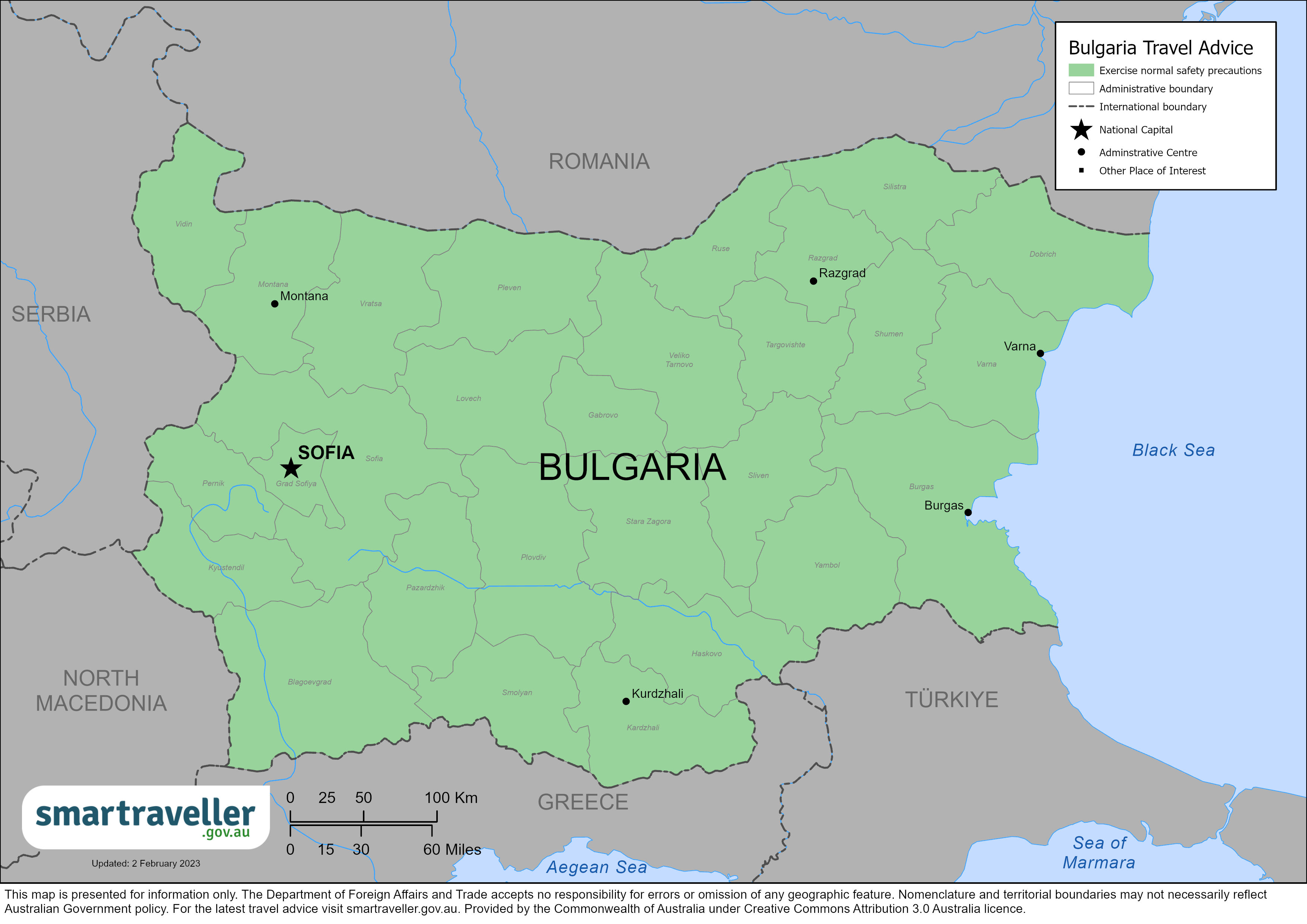
Bulgaria (PDF 256.65 KB)
Europe (PDF 2.62 MB)
Local emergency contacts
Fire and rescue services, medical emergencies.
Call 112 or go to a hospital.
Call 112 or go to the local police station.
Advice levels
- Bulgaria experiences extreme weather. Heatwaves and wildfires occur throughout summer, and heavy snowfall and storms can occur throughout winter. If you're in an area affected by extreme weather, monitor the media and follow the advice of local authorities.
- Beware of pickpocketing and bag snatching in crowded places and on public transport. Take care of your belongings.
- Protests occur regularly. They can disrupt public transport and turn violent without warning.
- Watch out for drink spiking. Don't leave your food or drinks unattended.
- Bombings, shootouts and gang wars can occur. Always be aware of your surroundings. Monitor the media for risks.
Full travel advice: Safety
- Rabies may be present in wild animals. Get medical help straight away if you get bitten.
- Avoid stray dogs. They can be vicious, and attacks are common.
- Tuberculosis, typhoid, measles and hepatitis are common. Avoid raw or undercooked food.
- Healthcare standards are well below those in Australia. Medical supplies can be limited. Major cities have good hospitals. You may need to be evacuated if you're seriously ill or injured. Make sure your insurance covers this.
Full travel advice: Health
- Don't use or carry illegal drugs. Penalties include heavy fines and prison sentences.
- Always carry an original form of valid photo ID.
- It's illegal to cover your face in public. Don't wear a balaclava or full veil.
- Same-sex relationships are legal in Bulgaria but aren't widely accepted. Avoid public displays of affection.
Full travel advice: Local laws
- You don't need a visa if you're visiting Bulgaria for tourism purposes. In other cases, you'll need a visa.
- Bulgaria partially joined the Schengen area on 31 March. Border checks have ceased for air and sea arrivals from other Schengen countries, but checks continue to be undertaken at land borders between Bulgaria and other Schengen countries.
- If you're travelling without a visa, ensure your entire visit to the Schengen area is within the 90-day limit.
- Entry and exit conditions can change at short notice. Contact the nearest Bulgarian Embassy or Consulate for enquiries relating to your ability to enter Bulgaria from your departure country.
Full travel advice: Travel
Local contacts
- The Consular Services Charter details what we can and can't do to help you overseas.
The Australian Consulate in Sofia provides limited services and doesn't issue passports or provide notarial services.
- You can get full consular help from the Australian Embassy in Greece.
- Follow the Embassy's social media accounts to stay up to date with local information.
Full travel advice: Local contacts
Full advice
Pickpocketing and bag snatching are common. Be careful:
- at tourist sites
- in crowded markets
- on shopping streets
- on trams and buses and at major transport hubs
Car theft is common, even at petrol stations. Make sure to lock your car when going inside to pay for petrol. Only some owners get their vehicles back.
Car break-ins are also common, especially when valuables are easily visible. Park in a secure car park wherever possible.
To protect yourself from crime:
- keep your belongings close, particularly in crowded areas
- securely carry an original form of valid photo ID (such as in a protected travel pouch)
- don't take valuables to the beach
- hold bags and backpacks in front of you
- when driving or parking your car, make sure any valuables are out of sight
- There have also been burglaries from hotel rooms and short term rental accommodation. Make sure you lock your room (including windows and balcony doors) and keep valuables locked in a safe.
Violent crime can happen, including:
- turf wars between rival gangs
Organised crime groups are active in casinos, nightclubs and the sex industry.
Watch out for drink spiking, especially at popular night spots. Never leave your food or drinks unattended. Don't accept food, drinks, gum, or cigarettes from strangers.
More information:
- Avoiding sexual assault overseas
Cyber Security
You may be at risk of cyber-based threats during overseas travel to any country. Digital identity theft is a growing concern. Your devices and personal data can be compromised, especially if you're connecting to Wi-Fi, using or connecting to shared or public computers, or Bluetooth.
Social media can also be risky in destinations where there are social or political tensions or laws that may seem unreasonable by Australian standards. Travellers have been arrested for things they have said on social media. Don't comment on local or political events on your social media.
More information:
- Cyber security when travelling overseas
Scams and fraud
ATM skimming and credit card fraud are common. Internet fraud also happens.
To protect your credit and ATM cards:
- use ATMs within banks, shops and shopping centres
- check ATMs for skimming devices before using them
- don't use ATMs that look like they've been tampered with
- be aware of any people who approach you at an ATM
- always keep your credit card in sight
- be wary if asked to re-enter your PIN
- be aware of internet scams
Terrorist attacks could occur anywhere and at any time. Be alert to possible threats, especially in public places. Terrorists may target tourist areas or other places frequented by foreigners and where large crowds may gather.
Possible targets include:
- places of worship or religious holidays
- hotels, clubs, restaurants and cafes
- markets and shopping malls
- outdoor recreation events, including festivals, concerts, and sporting venues
- public transport, airports and railway hubs
To stay safe:
- report suspicious activities or items to the police
- check the media for new threats
- take official warnings seriously
- follow the instructions of local authorities
If there’s an attack, leave the area as soon as it's safe to do so.
Terrorism is a threat worldwide.
Civil unrest and political tension
Protests, rallies and other demonstrations can occur without warning.
Public protests and events that draw large groups of people can turn violent. Injuries sometimes occur.
- Demonstrations and civil unrest
Climate and natural disasters
Bulgaria experiences natural disasters and severe weather , such as:
- earthquakes
- heavy snowfall
Large earthquakes are rare, but earth tremors are common.
Extreme weather can cause landslides and flooding. During the winter months, storms and heavy snowfall are common. Avalanches may happen in mountain regions, including at popular ski resorts, especially when warm temperatures follow a harsh winter.
From June to October, there are regular alerts for wildfires . Large-scale and fast-spreading fires in forests and fields are becoming more frequent. Heat waves and dry conditions contribute to the danger of fire.
Get updates from the National Institute of Meteorology and Hydrology .
Take official warnings seriously. Follow the advice from local authorities.
If there's a natural disaster or severe weather:
- secure your passport in a safe place
- keep in touch with family and friends
- monitor the media, other local sources and the Global Disaster Alert and Coordination System
- Travel insurance
Get comprehensive travel insurance before you leave.
Your policy needs to cover all overseas medical costs, including medical evacuation. The Australian Government won't pay for these costs.
If you can't afford travel insurance, you can't afford to travel. This applies to everyone, no matter how healthy and fit you are.
If you're not insured, you may have to pay thousands of dollars up-front for medical care.
You may need to show proof of travel insurance in Bulgaria at the port of entry.
- what activities and care your policy covers
- that your insurance covers you for the whole time you'll be away
Physical and mental health
Consider your physical and mental health before you travel, especially if you have an existing medical condition.
See your doctor or travel clinic to:
- have a basic health check-up
- ask if your travel plans may affect your health
- plan any vaccinations you need
Do this at least 8 weeks before you leave.
If you have immediate concerns for your welfare or the welfare of another Australian, call the 24-hour Consular Emergency Centre on +61 2 6261 3305 or contact your nearest Australian Embassy, High Commission or Consulate to discuss counselling hotlines and services available in your location.
- General health advice
- Healthy holiday tips (Healthdirect Australia)
Medications
Not all medications available over the counter or by prescription in Australia are available in other countries. Some may even be considered illegal or a controlled substance, even if prescribed by an Australian doctor.
If you plan to bring medication, check if it's legal in Bulgaria. Take enough legal medicine for your trip.
Carry a copy of your prescription or a letter from your doctor stating:
- what the medicine is
- your required dosage
- that it's for personal use
Health risks
Stray dogs roam city streets, often in packs. Dogs can be vicious, and attacks are common. Don't approach stray dogs and seek medical advice immediately if bitten.
Rabies may be present in wild animals.
If an animal scratches or bites you, seek immediate medical help. If you're going to work with wildlife in Bulgaria, your doctor may recommend getting the rabies vaccine before you travel.
Tick-borne encephalitis
Tick-borne encephalitis is a risk, especially if you travel through forested areas.
Ticks are common in country areas from April to October.
Insect bite prevention
To reduce the risk of getting infected from an insect bite:
- Use insect repellent
- Cover up with light-coloured, long sleeved and loose clothes
- Use mosquito netting when sleeping outdoors or in buildings that are not fully enclosed
- Avoid peak activity times, dawn and dusk
Other health risks
Waterborne, foodborne and other infectious diseases are present.
They include:
- trichinellosis
- tuberculosis
- west nile virus
To protect yourself from illness:
- in rural areas, drink boiled water or bottled water with sealed lids
- avoid ice cubes
- avoid uncooked and undercooked food, such as salads
- avoid wild game food
- practice good hygiene (washing hands, cleaning and disinfecting objects and surfaces)
- Get medical help if you have a fever or diarrhoea.
Medical care
Healthcare standards are well below those in Australia. Medical supplies are limited, particularly outside major cities. Staff rarely speak English.
Several private medical clinics and hospitals in Sofia and other major cities are well-equipped and well-staffed. However, treatment can be expensive. You may also need to pay doctors up-front.
Tourists have reported instances of being overcharged in private clinics in tourist resorts. If you plan to use private medical services (including ambulances), agree on a price with the provider before using the service.
If you become seriously ill or injured, you may be evacuated to a place with better facilities. Medical evacuation can be very expensive.
You're subject to all local laws and penalties, including those that appear harsh by Australian standards. Research local laws before travelling.
If you're arrested or jailed, the Australian Government will do what it can to help you under our Consular Services Charter . But we can't get you out of trouble or out of jail.
It's a legal requirement to have a form of valid photo ID with you at all times.
Drunk and disorderly behaviour can result in police issuing an arrest or fine. This includes loud and disruptive behaviour or urination in public places.
Covering your face in public is illegal, including wearing a balaclava, full veil or anything else that hides your face. Failure to comply can result in arrest and heavy fines. This doesn't apply to wearing a face mask to protect from airborne disease.
It's also illegal to:
- drive with a blood alcohol reading of 0.05% or higher
- refuse to take a breathalyser test
- smoke in any enclosed public place
- take photos of military sites or other secure places
- have sex with a child (under 18 years of age)
- view or distribute child pornography
Penalties for possessing or trafficking drugs be severe. They can include heavy fines and prison sentences.
- Carrying and using drugs
Australian laws
Some Australian criminal laws still apply when you're overseas. If you break these laws, you may face prosecution in Australia.
- Staying within the law and respecting customs
Dual citizenship
Bulgaria recognises dual nationality.
If you're a dual citizen, this limits the consular services we can provide if you're arrested or detained.
- Dual nationals
Local customs
Same-sex relationships are legal but aren't widely accepted. Outside the capital Sofia, attitudes are generally more conservative.
There have been incidents of discrimination, verbal abuse and vandalism targeting LGBT+ people.
- Advice for LGBTQIA+ people
Every country or territory decides who can enter or leave through its borders. For specific information about the evidence you'll need to enter a foreign destination, check with the nearest embassy, consulate or immigration department of the destination you're entering.
You don't need a visa to enter as a tourist for up to 90 days. You'll need a visa for other types of travel.
Bulgaria partially joined the Schengen area on 31 March. Border checks have ceased for air and sea arrivals from other Schengen countries, but checks continue to be conducted at land borders.
If you're travelling without a visa, ensure your entire visit to the Schengen area, including your stay in Bulgaria, is within the 90-day limit. This applies to all arrivals (air, land and sea).
Entry and exit conditions can change at short notice. Contact the nearest Bulgarian Embassy or Consulate for details about visas, customs and quarantine rules.
- Official Tourism Portal of Bulgaria
- Visas and entry requirements in Europe and the Schengen Area
Other formalities
Children under 18 years of age, including dual nationals, may only leave Bulgaria:
- if both parents accompany them or
- if they have consent from both parents
A Bulgarian notary must certify any parental consent.
If you're a single parent, ensure your child meets entry and exit rules.
- Embassy of Bulgaria in Australia
- Advice for people travelling with children
Some countries won't let you enter unless your passport is valid for 6 months after you plan to leave that country. This can apply even if you're just transiting or stopping over.
Some foreign governments and airlines apply the rule inconsistently. Travellers can receive conflicting advice from different sources.
You can end up stranded if your passport is not valid for more than 6 months.
The Australian Government does not set these rules. Check your passport's expiry date before you travel. If you're not sure it'll be valid for long enough, consider getting a new passport .
Lost or stolen passport
Your passport is a valuable document. It's attractive to people who may try to use your identity to commit crimes.
Some people may try to trick you into giving them your passport. Always keep it in a safe place.
If your passport is lost or stolen, tell the Australian Government as soon as possible:
- In Australia, contact the Australian Passport Information Service .
- If you're overseas, contact the nearest Australian embassy or consulate .
Passport with 'X' gender identifier
Although Australian passports comply with international standards for sex and gender, we can't guarantee that a passport showing an 'X' in the sex field will be accepted for entry or transit by another country. Contact the nearest embassy, high commission or consulate of your destination before you arrive at the border to confirm if authorities will accept passports with 'X' gender markers.
- LGBTQIA+ travellers
The currency of Bulgaria is the Bulgarian Lev (BGN).
If you're travelling between Bulgaria and any non-EU country, you must declare amounts over 10,000 euros or equivalent on both arrival and departure. This applies to all forms of currency, not only cash.
You'll need to pay a fine if you don't declare or give incorrect information.
You don't need to declare cash if travelling to or from another EU country.
Access to money
Bulgaria is mostly a cash economy, particularly outside of Sofia, although credit and debit card use is increasing.
Exchange money in banks, large hotels or exchange bureaus. Avoid unofficial or street sellers.
Local travel
Carry your passport when you cross borders, even within the Schengen area .
Check with local authorities and transport providers for the latest information on entry and exit changes and delays.
Driving permit
To drive in Bulgaria, you'll need:
- an International Driving Permit (IDP) and,
- your current Australian driver's licence (digital driver's licences may not be accepted)
Your travel and vehicle insurance might be void if you don't have an IDP.
Get your IDP before you leave Australia.
When hiring a car, keep a copy of the original contract from the car hire company with you. If you're travelling across a land border into Bulgaria with a hire car, the contract should make clear that the vehicle can travel into Bulgaria.
- Driving or riding
Road travel
Major city streets and intercity highways are generally in good condition.
Driving on rural and secondary roads is hazardous due to the following:
- poor maintenance and lighting
- narrow roads
- poor driving standards
- wandering livestock and horse-drawn carts
- rockslides and landslides on roads in the mountains
Police strictly enforce traffic laws and conduct frequent checks. These include radar speed checks.
Depending on the offence, they may collect on-the-spot fines or confiscate your licence.
If you drive in Bulgaria:
- keep your headlights on, even during the day
- use winter tyres from November to March
- carry a fire extinguisher, first aid kit and warning triangle in your vehicle
When travelling on motorways and outer city main roads, you'll get a fine if you don't have a valid digital vignette (a permit form of toll for using the road network in Bulgaria). A vignette can be purchased online . You don't need to print it. Authorities accept electronic evidence.
Major works are taking place on the Danube Bridge (the Friendship Bridge), which connects Bulgaria with Romania. During the works, road traffic will be limited to a single lane with a traffic light system. If you plan to travel across this bridge into Romania, plan extra time as delays are expected.
Motorcycles
Ask your travel insurer whether your policy covers using a motorcycle, quad bike or similar vehicle.
Always wear a helmet.
Use only authorised taxi and limousine services. Try to arrange these through your hotel. Uber is not available in Bulgaria.
Don't hail taxis on the street. Use taxis with meters that display clear rates.
Taxi drivers may overcharge, particularly at airports and train stations.
You can find companies offering metered taxi services inside Sofia Airport.
Quad biking
Quad biking is considered an extreme sport and carries the risk of serious injury or death. Not all travel insurance covers quad biking. Ensure you pay attention to the small print and exclusions on your travel insurance policy.
Public transport
Keep your belongings close on public transport, as petty crime happens.
The train system is poor by European standards. There have been several fires on trains.
Accessible public transport is available in Sofia and other large cities. However, it's limited in some parts of Bulgaria.
- Transport and getting around safely
DFAT doesn't provide information on the safety of individual commercial airlines or flight paths.
Check Bulgaria's air safety profile with the Aviation Safety Network.
Emergencies
Depending on what you need, contact your:
- family and friends
- travel agent
- insurance provider
Always get a police report when you report a crime.
Your insurer should have a 24-hour emergency number.
English-speaking operators are available.
Consular contacts
Read the Consular Services Charter for what the Australian Government can and can't do to help you overseas.
Australian Consulate, Sofia
37 Trakia Street Sofia, 1504 Bulgaria Phone: (+359) 2946 1334 Email: [email protected]
You can get full consular help from the Australian Embassy in Greece.
Australian Embassy, Athens
Level 2 5 Hatziyianni Mexi Street Athens 11528 Greece Phone: +30 210 870 4000 Email: [email protected] Website: greece.embassy.gov.au Facebook: Australia in Greece
X: AusAmbAthens
Check the Embassy website for details about opening hours and any temporary closures.
24-hour Consular Emergency Centre
In a consular emergency, if you can't contact an embassy, call the 24-hour Consular Emergency Centre on:
- +61 2 6261 3305 from overseas
- 1300 555 135 in Australia

Travelling to Bulgaria?
Sign up to get the latest travel advice updates..
Be the first to know official government advice when travelling.
Is Bulgaria Safe? 10 Important Insider Travel Tips
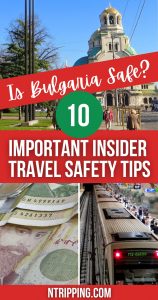
If you’re wondering is Bulgaria safe to travel, here’s the truth:
Bulgaria is safe to visit. Use common sense, avoid risky behaviors, and you should have no problems traveling around the country. While some areas have higher crime rates, most tourists, including US citizens, can enjoy a safe trip by staying alert, even when walking at night.
Don’t be afraid to ask for help. Stay vigilant and don’t let anyone get too close to you.
As a Bulgarian who’s lived several decades in the Balkan country without ever being robbed or feeling threatened, I want to share my top 10 insider travel safety tips , so you can have an amazing trip to Bulgaria.
Ready to explore?
Let’s dive right in!
My recommended Travel Resources that you need to visit Bulgaria:
🏨 Top Accommodation in Bulgaria at Booking.com 🏨
🚐 The Best Small-Group Tours from Get Your Guide 🚐
Disclaimer : This post contains affiliate links . If you purchase something through one of them, I may receive a small commission at no extra cost to you. Thank you for helping me create free content on this website!
Is Bulgaria Safe to Visit in 2024?
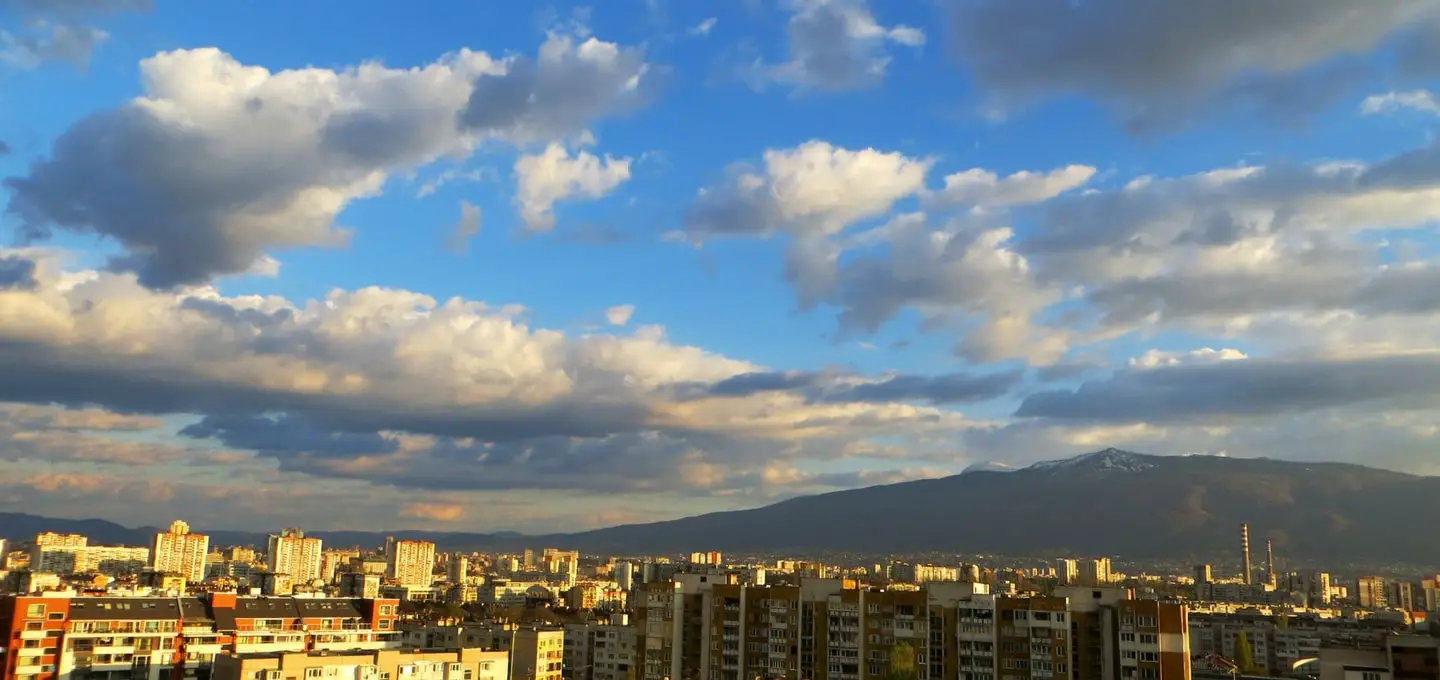
As a tourist, you won’t have any issues visiting Bulgaria in 2024.
The country remains mostly unaffected by the ongoing war between Russia and Ukraine.
The migrants, who are taking over other parts of Europe, don’t stay long in Bulgaria.
And the political corruption only affects locals but not travelers.
We don’t participate in military conflicts. The crime rates are quite low, according to statistics . We don’t engage in heated political debates and public protests are non-violent. Moreover, we’re tolerant towards different religions and ethnicities, which coexist in Bulgaria without conflicts.
The only thing travelers must keep in mind is petty crimes and violence on the roads.
If you’re aware of your surroundings and don’t walk drunk at night, you will stay safe in Bulgaria .
So, is Bulgaria safe? Yes, it is, especially if you follow my important insider tips for traveling the country.
Top 5 Safest Places to Visit in Bulgaria
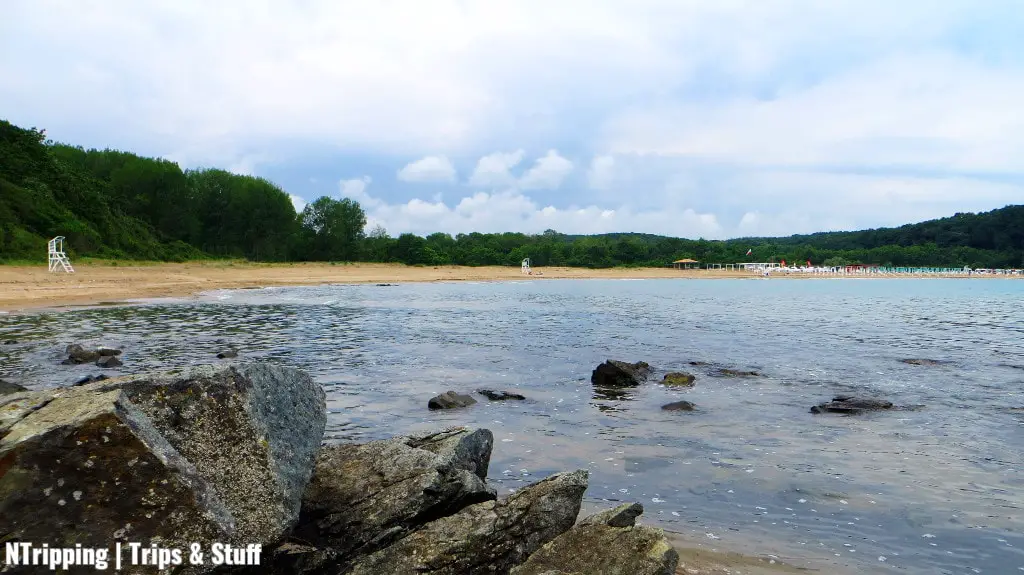
Is Bulgaria safe to visit? Well, some places are safer than others.
In Bulgaria’s cities, the centers are usually very safe, while it’s better to avoid the poorer residential areas.
Below are my top 5 safest places to visit in Bulgaria :
- Sofia : the city center is quite traveler-friendly. There are also a ton of amazing things to do in Sofia . Check out which scams and areas you should avoid in the sections below.
- Plovdiv : the Old Town and the city center are very safe for tourists.
- Other Bulgarian big cities : all major cities, such as Varna, Veliko Tarnovo, Burgas, and Stara Zagora are safe to visit if you avoid certain neighborhoods.
- Hidden Black Sea beaches : if you visit Bulgaria on a beach vacation, I recommend going to the more secluded coastal towns and beaches.
- Countryside : the Bulgarian countryside is very safe to visit. Don’t be afraid to venture off the beaten path and explore places such as Melnik , Velingrad , and Koprivshtitsa on road trips or day trips from Sofia .
Top 5 Places to Avoid Visiting in Bulgaria
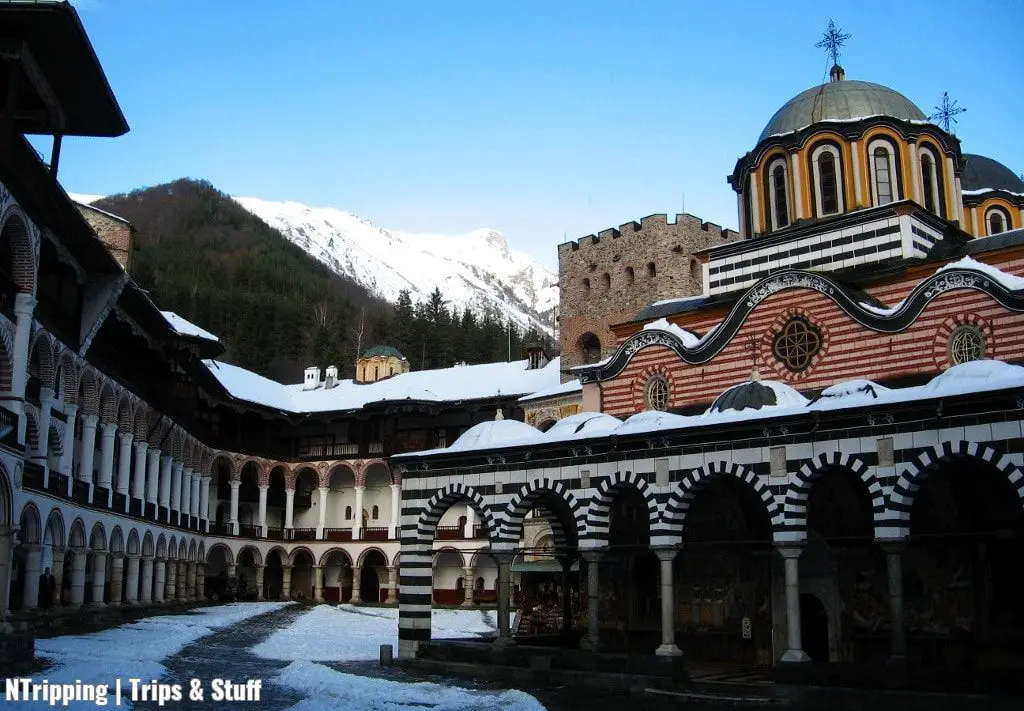
In any country you travel, there are places you should avoid.
In Bulgaria, these include residential areas in the bigger cities and some of the most touristy resorts. While your life will hardly ever be in danger, your vacation mood and your wallet might suffer in these spots.
Here are my recommendations for 5 places to avoid in Bulgaria if you want to stay safe:
- Dodgy neighborhoods : in Sofia, these are Filipovtsi and Fakulteta Districts. In Plovdiv, avoid going to Stolipinovo. If you’re visiting Varna or Burgas, stay away from Maksuda and Meden Rudnik.
- Tourist towns on the Black Sea : the most touristy places on the Bulgarian Black Sea coast have the worst reputation. Avoid going to Sunny Beach and Golden Sands because of the travel scams, low quality of service, and questionable cleanliness.
- Ski resorts : while Bulgaria is worth visiting for its majestic mountains, the ski resorts are overpriced, overcrowded, and lacking quality service. Also, roads aren’t always well-maintained in winter.
- Back alleys at night : stray dogs, potholes, and dodgy characters might scare you in the dark back streets in big cities and resorts in Bulgaria.
- Highways and main roads at night : the transportation network in Bulgaria is in questionable condition. Moreover, the roads are poorly lit at night. On top of this, encounters with drunk drivers are not uncommon. For these reasons, I personally avoid driving at night when possible.
Travel Scams and How to Avoid Them When Visiting Bulgaria
The last section might have you questioning if Bulgaria is safe.
Most of the travel scams below are widely known and practiced in almost every destination on Earth.
However, a couple of them can’t be pulled off anywhere else but in Bulgaria. Since they’re very typical, you should read the following lines carefully before your trip.
Even I as a local have almost fallen for some of them! That’s how simple yet clever they are. But you can still easily avoid them when you know what to watch out for.
Here’s what you should know about traveling safely to Bulgaria.
1. The Fake Exchange Rate

Bulgaria is mostly a cash economy. Outside the capital Sofia, only major chains accept card payments.
Don’t exchange your money anywhere else but in banks. The Bulgarian currency Lev is tied to the Euro. The official exchange rate is €1.00 = BGN1.95 (approximately $1.00 = BGN1.80).
The trick dealers at exchange kiosks use is adding an extra digit to the exchange rate.
This means that for exchanging €1.00, you’ll only get BGN1.195 . It’s hard to notice the difference and many people have fallen for this scam.
2. The Old, Invalid Banknotes
The currently valid Bulgarian banknotes and coins are issued after 1999 .
You can check what they look like at the Bulgarian National Bank’s Official website .
Scammers might try to hand you old, invalid banknotes or coins when returning your change or exchanging money on the street.
The latter you should never do anyway.
This scam has been reported mostly at big, touristy places on the Bulgarian Black Sea coast . Not only should you be careful in such places, but my advice is to generally avoid visiting these unauthentic, overpriced, tourist traps.
3. The Beggars
You’ll encounter beggars in city centers and in touristy towns.
Never, ever, for no reason whatsoever, give them money!
No matter how miserable, poor, young, old, or disabled they appear to be, they are actually earning more money than you out of the goodness of people.
They’re organized in groups and begging is a lucrative business.
4. The Fake Taxis
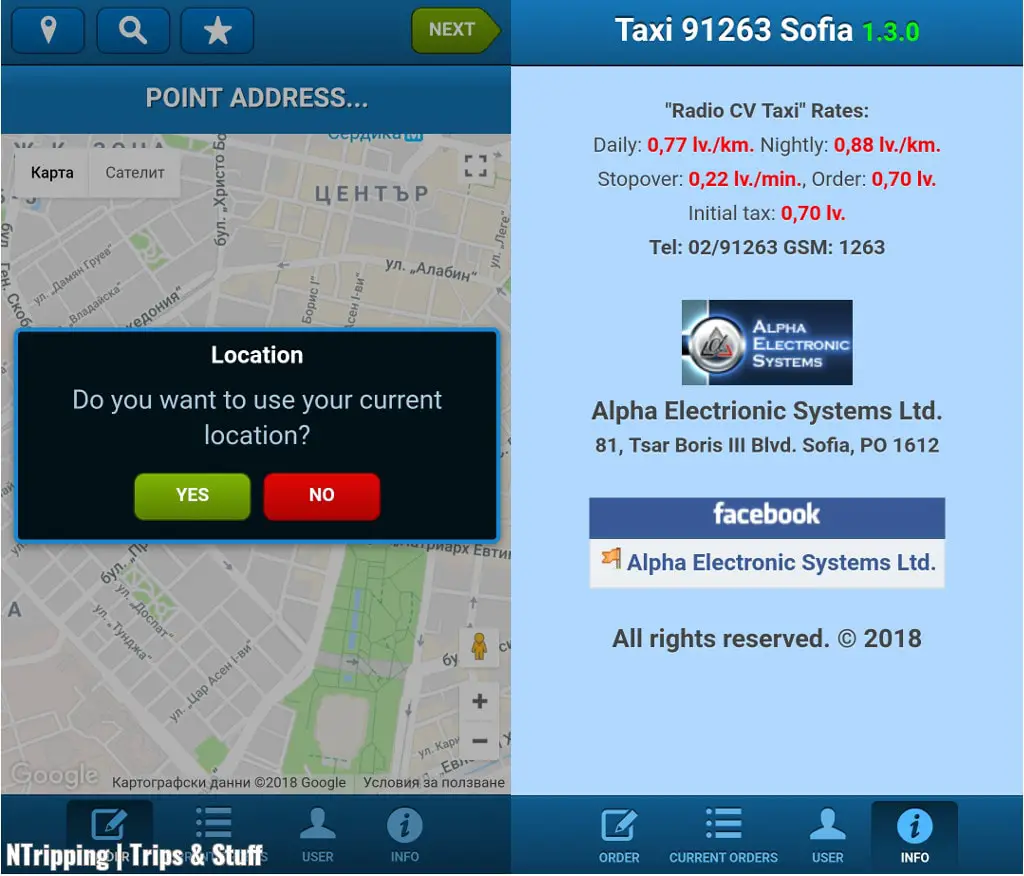
Inflated taxi rates aren’t something new. You can experience this scam in almost every big city or touristy place
However, fake taxi companies are something you should be extra careful about in Bulgaria.
In Sofia, there are a handful of well-known, established, and reliable taxi companies.
The scammers fake their stickers and make their cars appear as if they belonged to a reputable company. They only change a letter in the logo of the company and a few digits in the telephone number.
The safest way to catch a taxi is by using one of the official apps or asking someone you trust to call you a cab.
5. The Pickpockets in Crowded Areas
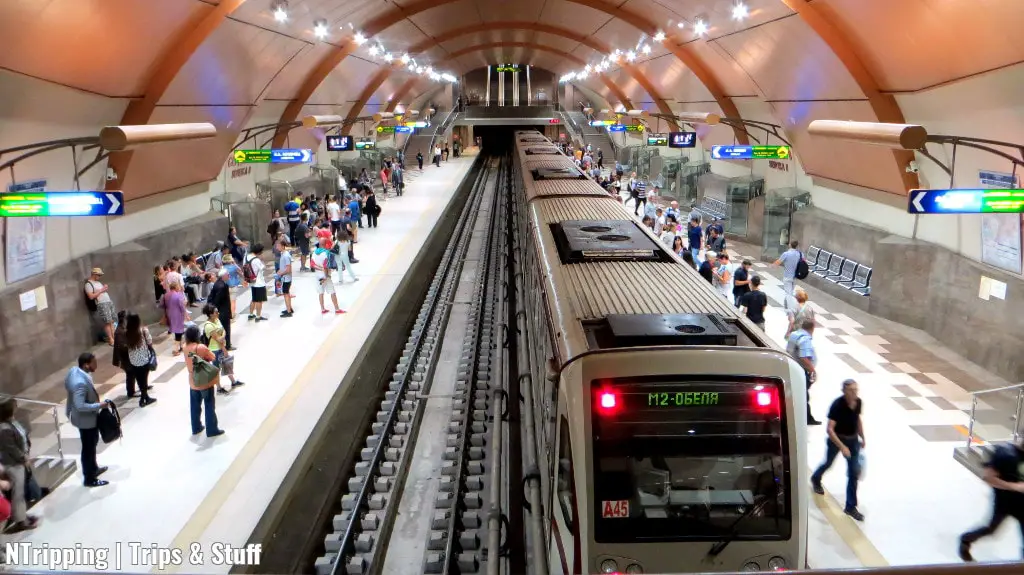
Large gatherings attract pickpockets like magnets everywhere in the world.
In Bulgaria, one of the most popular places for pickpockets to perform their “crafts” are jam-packed public transportation buses and trams .
Some are so good that they’ll manage to “relieve” you of your valuables even while waiting for a few seconds at a traffic light on a street corner.
To avoid being ripped, frequently check your belongings. Backpacks are not suitable for crowded places and if you must carry your valuables in one, put it in front of you.
The best way to evade being robbed is to always be aware of your surroundings. Don’t let anyone get too close to you. This means not getting on a crowded bus or tram, and waiting for the next one.
In Sofia, the safest way to travel by public transport is the metro. The constant police presence and video surveillance make it hard for pickpockets to get away with your belongings.
On top of that, one of the most interesting facts about Sofia is that many of the metro stations display art and historic artifacts. Check out Serdica II if you want to admire Roman antiquities.
6. The “Free” Gift
Sometimes in the streets or at underpass exits, a stranger might hand you something small: a postcard, a tiny Christian icon, or a bracelet.
The person will insist it’s free and it’s a gift for good luck, good fortune, or whatever other reason.
The moment you take it, they’ll tell you that you have to pay them. They’ll follow you around and won’t accept to take back the object they insisted on giving you.
So after you get annoyed, you’ll budge and give them money.
This is a popular trick played on tourists all over the world. I’ve witnessed it in multiple destinations. Don’t fall for it – simply deny anything from anyone you don’t know.
7. The Inflated Bill

Before paying your bill at the restaurant or handing over your money to the bartender, make sure they’ve asked for the correct amount.
Sometimes you’ll find an extra salad or a beer you didn’t order on the bill. Rarely it’s an honest mistake, more often it’s your waiter trying to make a few bucks on the side.
Be polite and point out the error. Most of the time, they’ll apologize and recalculate your bill.
8. The Absent Ticket
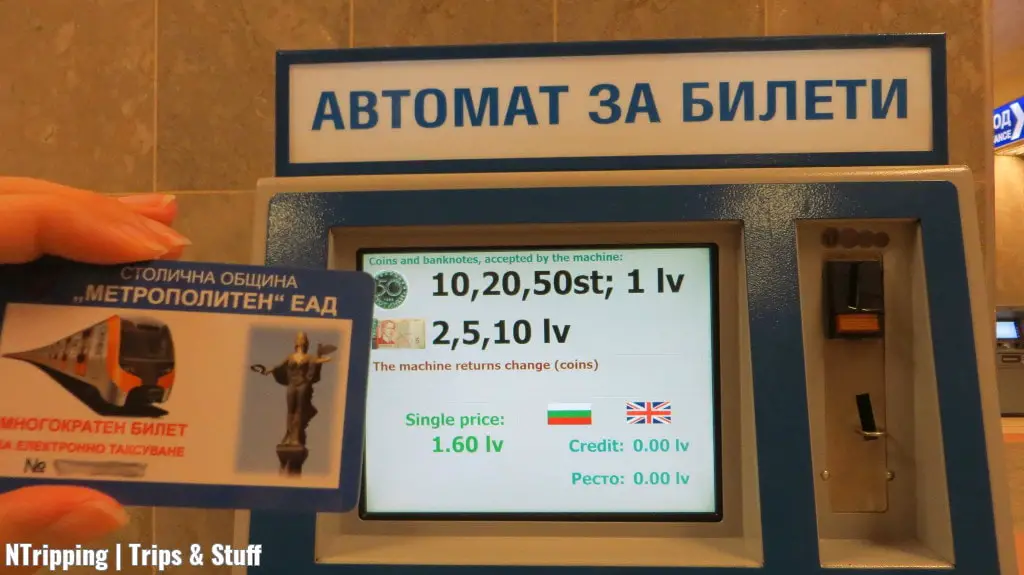
When traveling in Bulgaria, you have to buy your transportation ticket in advance.
Theoretically, it’s possible to buy it from the driver. But it’s almost impossible to receive a ticket unless you have an exact change.
The most popular place to pull this scam is at Sofia Airport. If you want to use public transportation to get to your accommodation, remember to buy a ticket BEFORE you hop on the bus or metro.
Tourists have reported that they caught the bus from the airport without tickets. The driver refused to sell them because they didn’t have exact money. Moments after the bus departed, they were fined for not having valid tickets.
When using the metro, remember that tickets are only valid at the time and from the station of purchase.
9. The Dark Back Alleys
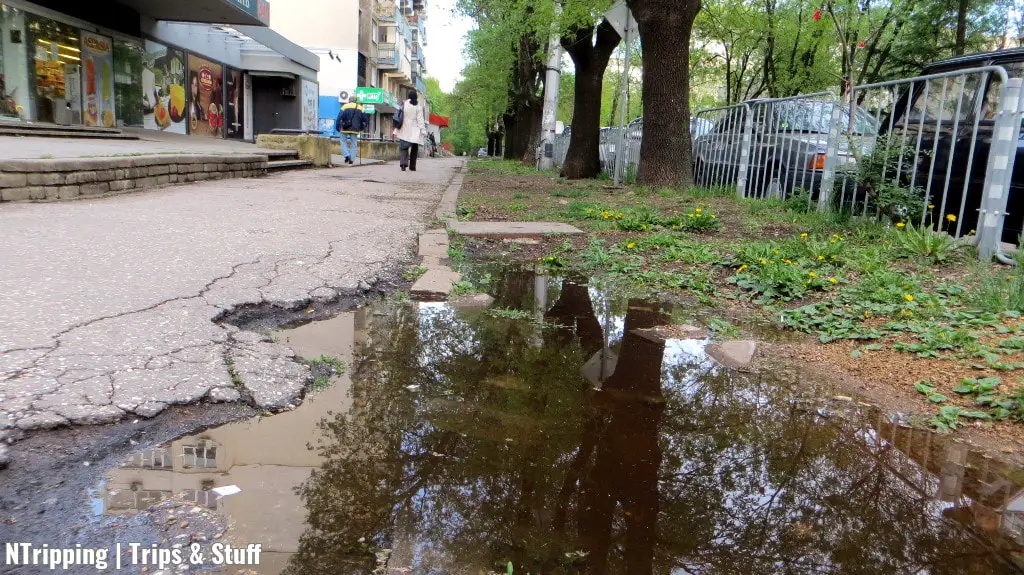
Sadly, most back alleys in Bulgaria are poorly lit at night .
This doesn’t necessarily mean that you’ll be mugged if you wander on foot to your accommodation. It simply means that it might be dangerous to do so as obstacles are often in your way.
It is still safe to walk at night in Bulgaria, it’s just unpleasant.
Take a longer route and use the main streets to walk home or call a cab to take you there. The risk is not worth it, especially if you’ve just had a few drinks and are not fully focused.
(By the way, the pothole in the photo above has since been fixed. The sidewalk is now quite nice to walk on. But not all sidewalks are, unfortunately. )
10. The Stray Animals
When walking the streets of any Bulgarian town, you’ll notice the presence of stray dogs and cats .
I get it, we all love animals. However, please suppress your urge to pet them, give them food, or – god forbid – take them with you. They carry countless diseases and can turn aggressive in a blink of an eye.
Unfortunately, the latter is also true for domestic dogs. Often, they walk the streets unleashed and might attack you for no apparent reason.
It’s safest to keep your distance and try to avoid confrontation with both the animal and its owner.
Is This a Scam: People Selling Small Things at Your Table
When eating out, sometimes old women might approach you, selling seasonal flowers.
Other times, young people might offer you keychains, pens, or small souvenirs at your restaurant table. They’ll leave them on the table alongside a note, saying that they’re produced by deaf or disabled people.
These are not scams . Instead of begging, these people are trying to earn a few extra bucks to be able to support themselves.
If you could spare a few coins, buy something small that you could either gift to someone else or keep as a reminder of how fortunate you are to travel to beautiful places like Bulgaria.
FAQs About Safety in Bulgaria
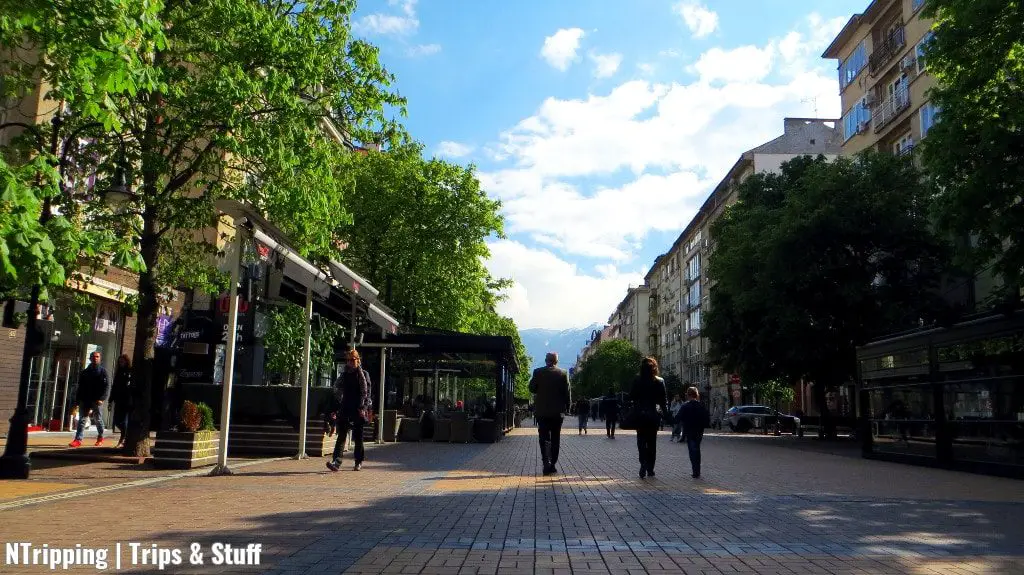
You didn’t find the answer you were looking for in the previous sections?
Don’t worry, we’re still not done!
Here are some more answers related to the question “Is Bulgaria safe”:
Is It Safe for Americans to Go to Bulgaria?
It is safe for US citizens to travel to Bulgaria. You can sign up for the Smart Traveler Enrolment Program (STEP), which allows you to receive travel alerts and will locate you in case of an emergency.
Is Bulgaria Safe to Walk at Night?
It’s perfectly safe to walk in Bulgaria at night. However, you should keep a few tips in mind.
Back alleys are usually poorly lit and potholes dot the streets and sidewalks. On top of that, stray dogs walk unattended. Don’t carry large amounts of cash or flashy jewelry.
If you decide to walk in Bulgaria at night, choose a broader, well-lit main street or bring a small flashlight with you.
Is Bulgaria Safe for Female Tourists?
If you’re worried if Bulgaria is safe for women, let me reassure you. Most places in Bulgaria, especially the large cities and the most famous landmarks, are very safe.
Take common-sense precautions, keep your valuables hidden and out of reach, and you’ll be perfectly safe as a (solo) female traveler in Bulgaria.
Is Bulgaria Safe for Families with Children?
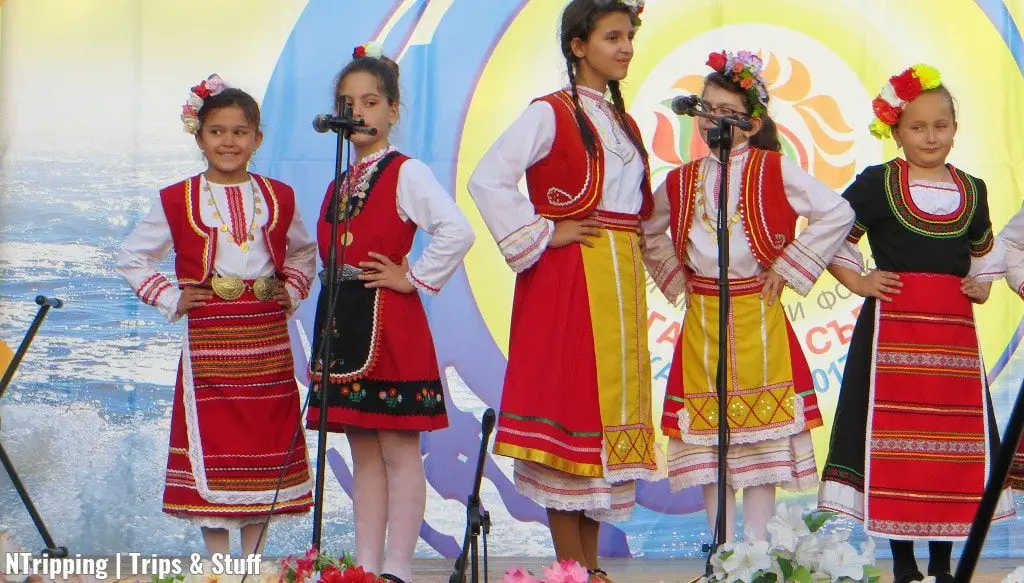
Bulgaria is safe for travelers visiting with their families. Hotel pools and resort beaches have lifeguards. Ski resorts provide ski lessons.
Many places offer discounts and special services for children. Still, you shouldn’t leave your kids unattended while enjoying your vacation in Bulgaria.
What Are the Emergency Numbers in Bulgaria?
The emergency number in Bulgaria is 112. It’s the same as in most of Europe.
You can dial it for free from your mobile.
Here are other direct emergency numbers you might want to save:
- For calling the police directly, dial 166 .
- For the fire department, dial 160 .
- And to call an ambulance, dial 150 .
Is Bulgaria Safe – Now You Know the Answer
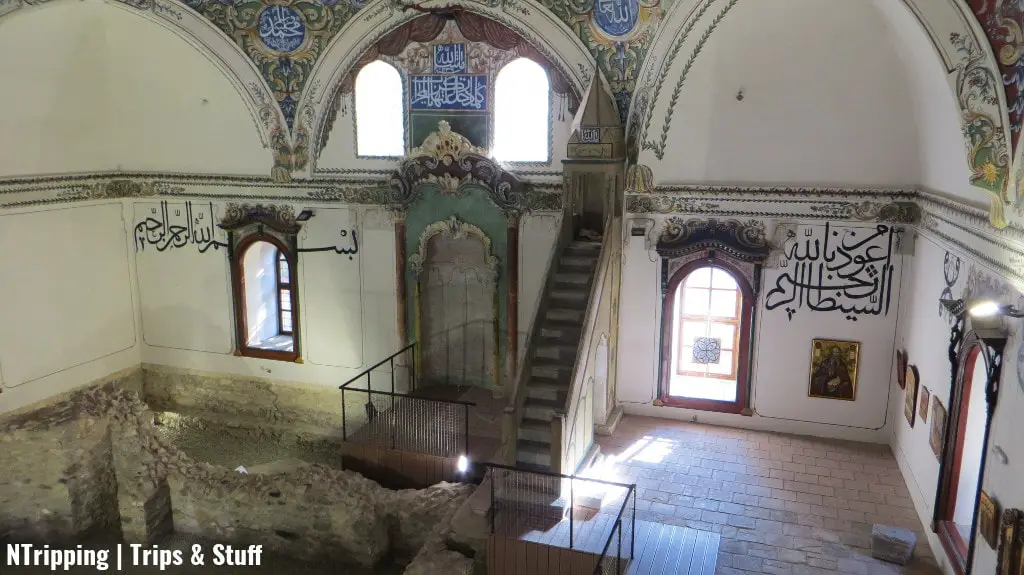
There you have it – the most comprehensive expert answer to the question “ Is Bulgaria safe “.
If you avoid the touristy places and poor residential districts of the big Bulgarian cities, as well as follow my insider safety travel tips, you’ll have a blast visiting Bulgaria.
Don’t let the media scare you with its negativity. Bulgaria is safe for travelers and locals alike. And totally worth visiting!
Now, I’d like to hear it from you:
Have you traveled to Bulgaria? In your opinion, is Bulgaria safe?
Let me know in the comments below!
Born and raised in Bulgaria, I've spent years living in Germany, the USA, and Spain, and have traveled to 45+ countries. Now, I'm on a mission to uncover the most epic road trips, best beaches, and authentic local experiences to help you plan your next adventure.
Thanks for sharing N! Very useful tips here. would say for tourists, the main one to watch is really the unlicensed/fake taxis. Otherwise, for the other scams, it should not be too painful :)
As for general safety, as long as one exercises common sense, the place is really safe. I have checked and found that for instance, victims of intentional homicide per 100,000 inhabitants per year in Bulgaria is only 1.1, even lower than Europe’s average of 1.6 and the global average of 8.2 in 2016!
So wishing all a good time in Bulgaria!
Thanks for commenting, David!
You’re right, Bulgaria is safe for tourists. In fact, it’s much safer than many popular travel destinations.
Fake and overpriced taxis are a problem anywhere in the world. The scams, which are typical for Bulgaria and I always warn visitors about, are the first and the second on the list. You can’t pull them off in many places :) Other than that, using common sense is all you need to stay out of trouble!
- Pingback: The PERFECT 2 Week Balkan Road Trip – California Globetrotter
Leave a Reply Cancel reply
Your email address will not be published. Required fields are marked *
Save my name, email, and website in this browser for the next time I comment.
Security Alert May 17, 2024
Worldwide caution.
- Travel Advisories |
- Contact Us |
- MyTravelGov |
Find U.S. Embassies & Consulates
Travel.state.gov, congressional liaison, special issuance agency, u.s. passports, international travel, intercountry adoption, international parental child abduction, records and authentications, popular links, travel advisories, mytravelgov, stay connected, legal resources, legal information, info for u.s. law enforcement, replace or certify documents.
Share this page:
Learn about your destination
Take 90 seconds for safer travel.
Travel Advisory Levels
Enroll in step.

Subscribe to get up-to-date safety and security information and help us reach you in an emergency abroad.
Recommended Web Browsers: Microsoft Edge or Google Chrome.
Write to us
Ministry of tourism 1, Saborna St., Sofia 1000, Bulgaria UIC: 176789478 VAT: BG176789478
phone : +359 2 904 6809
UPDATED INFORMATION FOR TRAVELERS ON ENTRY TO BULGARIA
Fr om July 19 th , 2021 to July 31 st , 2021 on the basis of Order No. RD-01-597/16.07.2021 of the Minister of Health for tourism purposes in the territory of the Republic of Bulgaria tourists are allowed through the following border checkpoints:
- BORDER CHECKPOINT „Burgas Airport“;
- BORDER CHECKPOINT „Varna Airport“;
- BORDER CHECKPOINT „Plovdiv Airport“;
- BORDER CHECKPOINT „Sofia Airport“ (Terminal 1 and Terminal 2);
- BORDER CHECKPOINT „Port of Burgas“;
- BORDER CHECKPOINT „Port of Varna“;
- BORDER CHECKPOINT „Vidin“;
- BORDER CHECKPOINT „Vrashka chuka“;
- BORDER CHECKPOINT „Durankulak“;
- BORDER CHECKPOINT „Gyueshevo“;
- BORDER CHECKPOINT „Ilinden“;
- BORDER CHECKPOINT „Kalotina“;
- BORDER CHECKPOINT „Kapitan Andreevo“;
- BORDER CHECKPOINT „Kapitan Petko voyvoda“;
- BORDER CHECKPOINT „Kulata“;
- BORDER CHECKPOINT „Lesovo“;
- BORDER CHECKPOINT „Makaza“;
- BORDER CHECKPOINT „Malko Tarnovo“;
- BORDER CHECKPOINT „Oryahovo“;
- BORDER CHECKPOINT „Russe“
- BORDER CHECKPOINT „Stanke Lisichkovo“
- BORDER CHECKPOINT „Somovit-Nikopol“
- BORDER CHECKPOINT „Oltomantsi“
- BORDER CHECKPOINT „Zlatarevo“
Entry is based on an assessment of the prevalence of COVID-19 in the respective countries by criteria and placement of the countries in color zones.
Criteria for assessing the prevalence of COVID - 19 are:
- 14-day morbidity;
- weekly positivity of the performed laboratory tests;
- level of examination in the country;
- identification of a variant of SARS-CoV-2 identified as a “worrying” variant;
- lack of sufficient information.
The color zones are as follows:
- Green zone;
- Orange zone;
Option No. 1: Measures for persons arriving from EU and EEA Member States and the Swiss Confederation, according to color zones:
- Countries in the Green Zone
Persons are admitted to the territory of the country upon presentation of a valid EU digital COVID certificate for vaccination, disease or testing, or a similar document containing the same data as the EU digital COVID certificate. In case of failure to provide such, the person shall be quarantined for 10 days in the home or other accommodation where he / she has indicated that he / she will reside, with a prescription issued by the director of the respective regional health inspectorate or his / her authorized Deputy Director. The quarantine may be revoked by providing by e-mail a document showing a negative result of a polymerase chain reaction test for the detection of COVID-19 carried out within 24 hours of entry into the territory of the country or by a rapid antigen test specified in Annex No. 2 of the Order. The prescription shall be revoked within 24 hours from the presentation of the document showing a negative result from the conducted examination.
Countries in the Orange Zone:
- Persons are admitted to the territory of the country only upon presentation of a valid EU digital COVID certificate for vaccination, disease or testing, or a similar document containing the same data as the EU digital COVID certificate. A study of COVID-19 with a rapid antigen test is performed in at least 5 percent of the total entrants from orange zone countries.
Countries in the Red Zone:
- Persons are not allowed on the territory of the country.
Option No. 2 Measures for persons arriving from non - EU and EEA countries and the Swiss Confederation:
- All persons arriving from non-EU and EEA countries and the Swiss Confederation and not falling into the Red Zone are considered to arrive from orange zones and are admitted to the territory of the country only upon presentation of a valid EU digital COVID vaccination certificate. or for a study carried out, or of a similar document containing the same data as the EU digital COVID certificate.
INPORTANT INFORMATION:
Children up to the age of 12 do not need to submit COVID-19 documents.
Persons arriving from countries with which the Republic of Bulgaria has reached an agreement for free passage on a reciprocal basis do not need to submit documents for COVID-19. At the moment, these are Romania and the Czech Republic.
List of countries according to Annex No. 1 , to items I, 3 and 7 of Order No. RD-01-5 53 / 05.0 7.2021 of the Minister of Health
Green Zone:
- The Republic of Austria;
- The Federal Republic of Germany;
- The Republic of Estonia;
- The Republic of Lithuania;
- The Grand Duchy of Luxembourg;
- The Republic of Malta;
- The Republic of Poland;
- The Slovak Republic;
- The Republic of Finland;
- The Republic of Croatia;
- The Kingdom of Denmark;
- The Italian Republic;
- The Republic of Slovenia;
- The French Republic;
- The Kingdom of Norway;
- The Republic of San Marino;
- The Principality of Andorra;
- The Principality of Monaco;
- The Vatican City State;
- Czech Republic;
- Confederation of Switzerland;
Orange Zone:
All countries outside the green and red zone.
- The Republic of India;
- The People's Republic of Bangladesh;
- The Federal Democratic Republic of Nepal;
- The Republic of the Union of Myanmar;
- The Kingdom of Bhutan;
- The Democratic Socialist Republic of Sri Lanka;
- The Republic of Maldives;
- The Federative Republic of Brazil;
- The Republic of South Africa;
- The Republic of Botswana;
- The United Republic of Tanzania;
- The Republic of Seychelles;
- The Republic of Namibia;
- The Republic of Zambia;
- The Republic of Tunisia;
- The Sultanate of Oman;
- The Republic of Turkmenistan;
- The Republic of Tajikistan;
- The Kyrgyz Republic;
- The Republic of Colombia;
- The Republic of Chile;
- The Eastern Republic of Uruguay;
- The Argentine Republic;
- The Republic of Paraguay;
- The Plurinational State of Bolivia;
- The Republic of Peru;
- The Republic of Suriname;
- The Republic of Panama;
- The Republic of Costa Rica;
- The Republic of Guatemala;
- The Republic of El Salvador;
- The Republic of Cuba;
- The Dominican Republic;
- The Kingdom of Spain;
- The United Kingdom of Great Britain and Northern Ireland;
- The Republic of Fiji;
- The Emirate of Kuwait;
- The Republic of Cyprus;
Countries with which the Republic of Bulgaria has reached an agreement on free passage on a reciprocal basis:
Countries for which there is information about a significant negative change in the epidemic situation in the respective country or in its separate territories and specific control measures applied for the persons arriving from them:
- The Russian Federation*
- The Republic of Portugal*
*Arrivals are admitted to the territory of the country upon presentation of a valid EU digital COVID test certificate or similar document showing a negative result from a polymerase chain reaction (PCR) test for COVID-19 conducted up to 72 hours before entry into the country, as from the date of the testing entered in the document.
The list is subject to update and supplementation depending on the development of the epidemic situation.
Information by country from the Ministry of Foreign Affairs, in connection with the travel conditions at COVID-19 - https://www.mfa.bg/en/customnews/main/24737
- Printer-friendly version
Contacts: Sofia 1000, 1 Saborna St. phone.: +359 2 904 6809, [email protected]
- Legal policy
- Enter to old version of the site
2016 © Ministry of Tourism of the Republic of Bulgaria

IMAGES
COMMENTS
If you decide to travel to Bulgaria: Enroll in the Smart Traveler Enrollment Program ( STEP) to receive Alerts and make it easier to locate you in an emergency. Follow the Department of State on Facebook and Twitter. Review the Country Security Report for Bulgaria. Visit the CDC page for the latest Travel Health Information related to your travel.
Bulgaria is generally a safe country to travel to, and its people, much like in other Balkan countries, are quite friendly even though Balkan people have a falsely bad reputation. However, even though it is safe, and Bulgaria's crime rates are not high, you should always use common sense when you are outside of the main tourist areas.
With that in mind, I've created this epic insider's guide to staying safe in Bulgaria. You're going to find just about all the information you need to help you achieve top marks in savvy travel, and make sure your Bulgaria visit runs super smoothly. Home to the Rila monastery, Bulgaria is a great visit! The Broke Backpacker is supported ...
Bulgarian citizens and persons with the status of permanent, long-term or continuous residence on the territory of the Republic of Bulgaria and members of their families arriving from the countries under item 4.6. are placed under quarantine for a period of 10 days in their home or other place of accommodation in which the person has indicated ...
While in Bulgaria, always carry your U.S. passport or a Bulgarian residence permit, known in Bulgaria as lichna karta. U.S. passport cards are recognized as proof of citizenship and identity but are not sufficient for international air travel to and from Bulgaria. Visitors are required to maintain medical insurance for the duration of stay in ...
FCDO travel advice for Bulgaria. Includes safety and security, insurance, entry requirements and legal differences.
For tourism purposes, tourists from 97 countries can come to Bulgaria.
Frontier workers (persons living in Bulgaria and traveling daily or weekly to a Member State of the European Union, North Macedonia, Serbia, or Turkey for the purpose of pursuing an activity as an employee or as self-employed person, as well as persons who live in the indicated countries and travel daily or weekly to Bulgaria for the purpose of ...
FCDO travel advice for Bulgaria. Includes safety and security, insurance, entry requirements and legal differences.
Our Bulgarian safety expert, Svetoslav Dimitrov, shares his tips for travelers, from crime and scams to natural disasters in Bulgaria.
Updated information (Updated on April 14, 2022) Messages from the Ministry of Tourism: Updated information for travelers on entry to Bulgaria Recommendations of anti-epidemic measures in tourist sites & activities for winter season 2021/2022 COVID-19 Health Travel Protocol Guidelines for the functioning of accommodation establishments and food and entertainment establishments in the conditions ...
The convention applies between Canada and Bulgaria. If your child was wrongfully taken to, or is being held in Bulgaria, and if the applicable conditions are met, you may apply for the return of your child to the Bulgarian court. If you are in this situation: act as quickly as you can
If you do meet an exception to enter from a Red Zone country, or if you start your travel from a Green or Orange Zone country, you may enter Bulgaria under the conditions listed in the new Health Order of the Bulgarian Ministry of Health. See our COVID-19 information page for details.
Find continuously updated travel restrictions for Bulgaria such as border, vaccination, COVID-19 testing, and quarantine requirements.
From July 8th, 2021 to July 31st, 2021 on the basis of Order No. RD-01-547 / 30.06.2021, amendmented and supplemented of Order № RD-01-553/05.07.2021 of the Minister of Health for tourism purposes in the territory of the Republic of Bulgaria tourists are allowed through the following border checkpoints: Entry is based on an assessment of the ...
FCDO travel advice for Bulgaria. Includes safety and security, insurance, entry requirements and legal differences.
Is Sofia a safe city for tourists? We've gathered all the new crime data and safety information in this all-inclusive planning guide.
Australian Government travel advice for Bulgaria. Learn more about local safety, laws and health risks.
Is Bulgaria safe to travel to? In this article, you'll find the answer and the 10 most important insider travel tips about visiting Bulgaria safely.
Visiting Bulgaria still isn't a popular choice for many travellers, but these travel tips will help you see why it's so worth visiting.
From August 4th, 2021 to August 31st, 2021 on the basis of Order No. Rd-01-645/28.07.2021, amendmented of Order No. Rd-01-673/02.08.2021 of the Minister of Health for tourism purposes in the territory of the Republic of Bulgaria tourists are allowed through the following border checkpoints: Entry is based on an assessment of the prevalence of ...
Enroll in STEP Subscribe to get up-to-date safety and security information and help us reach you in an emergency abroad.
16 July 2021. UPDATED INFORMATION FOR TRAVELERS ON ENTRY TO BULGARIA. From July 19th, 2021 to July 31st, 2021 on the basis of Order No. RD-01-597/16.07.2021 of the Minister of Health for tourism purposes in the territory of the Republic of Bulgaria tourists are allowed through the following border checkpoints: BORDER CHECKPOINT „Burgas ...